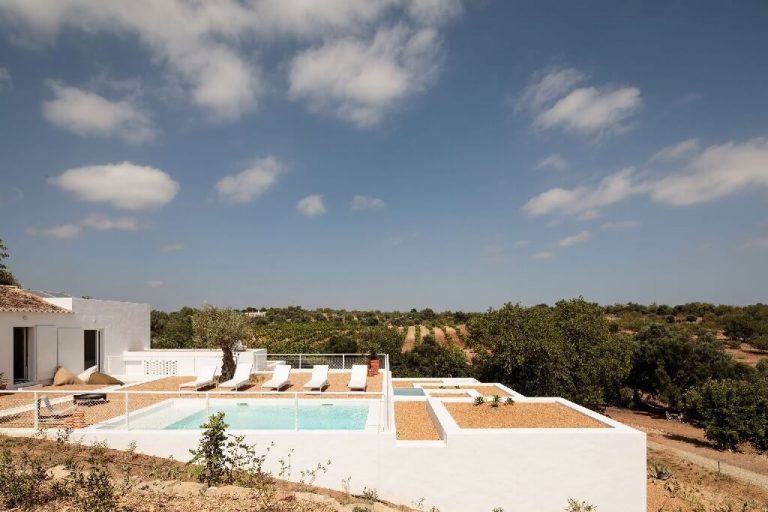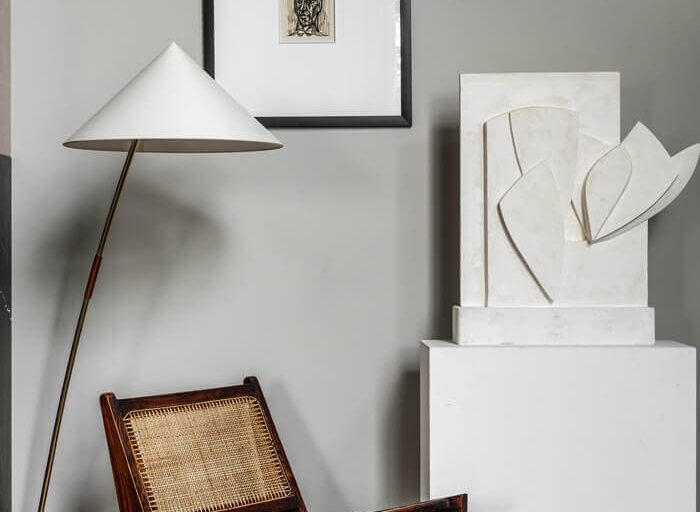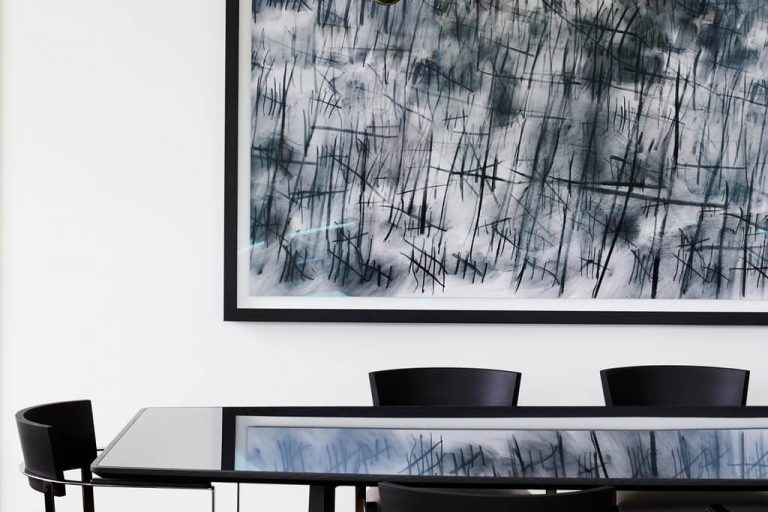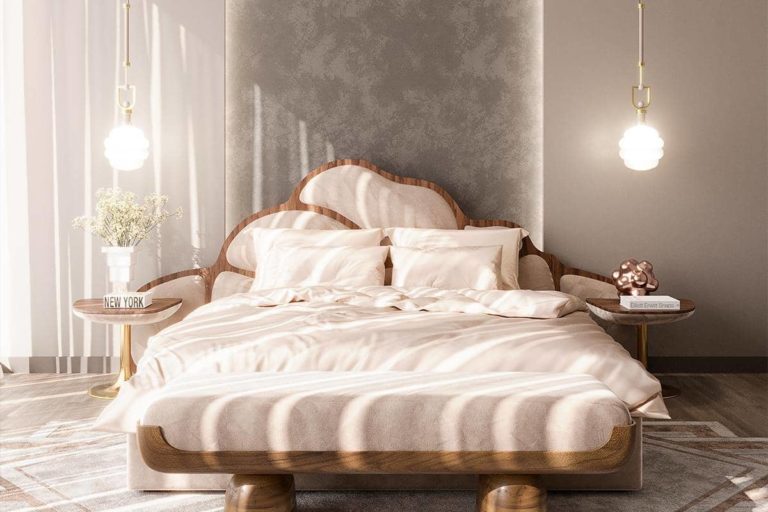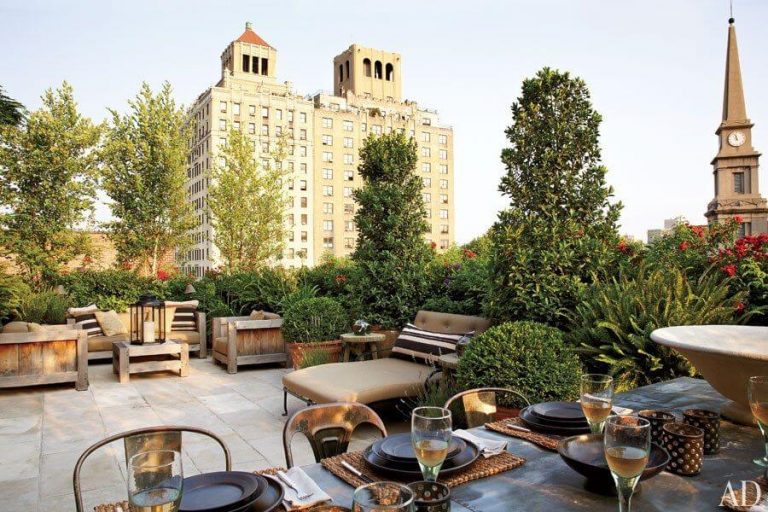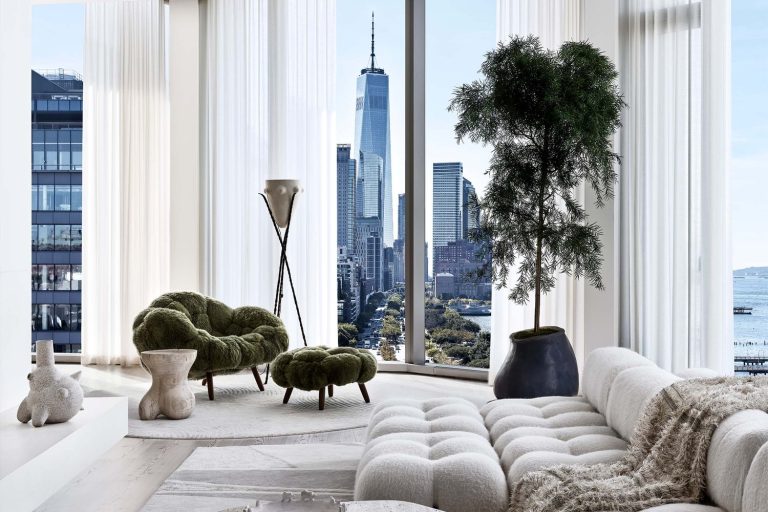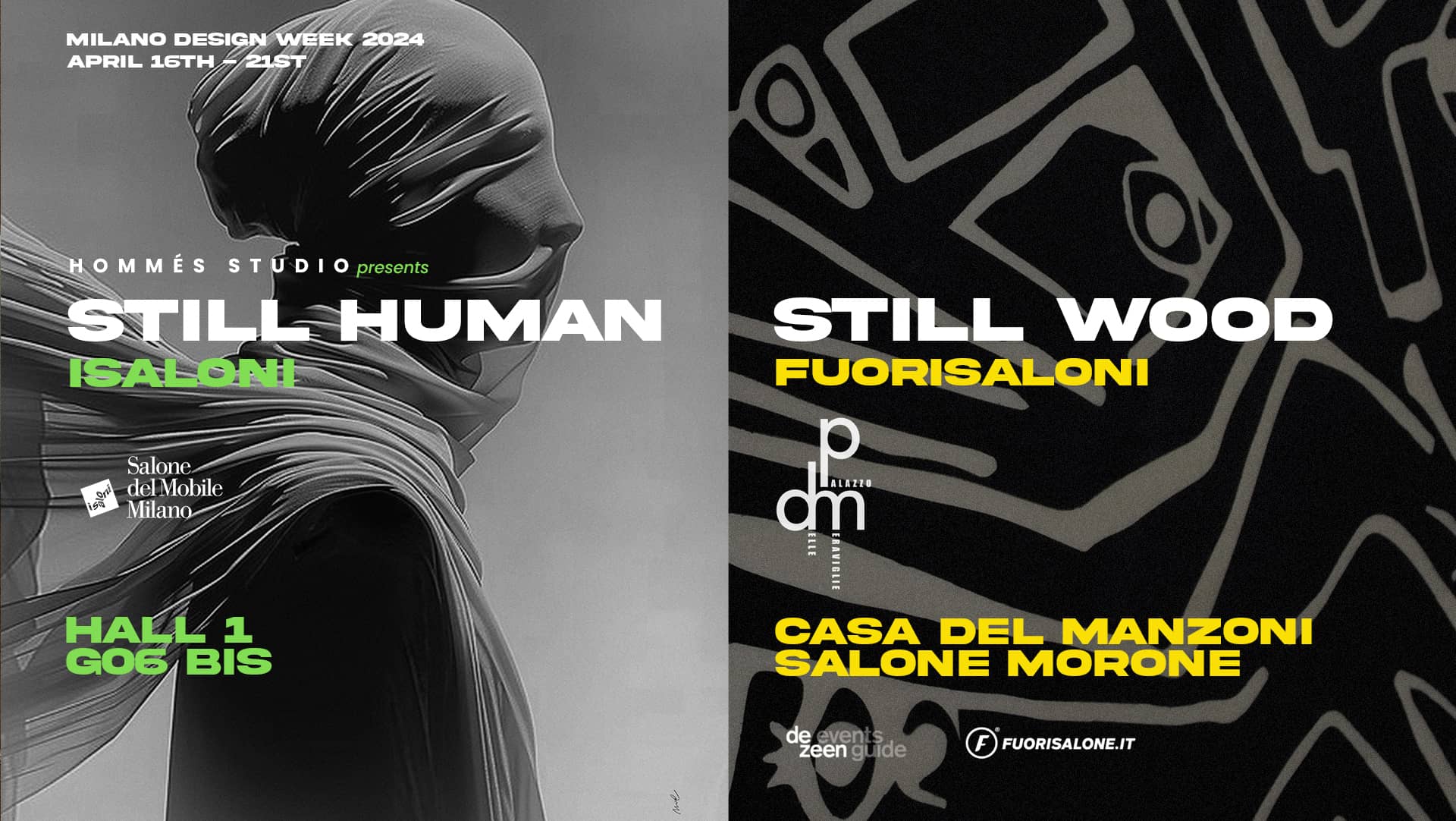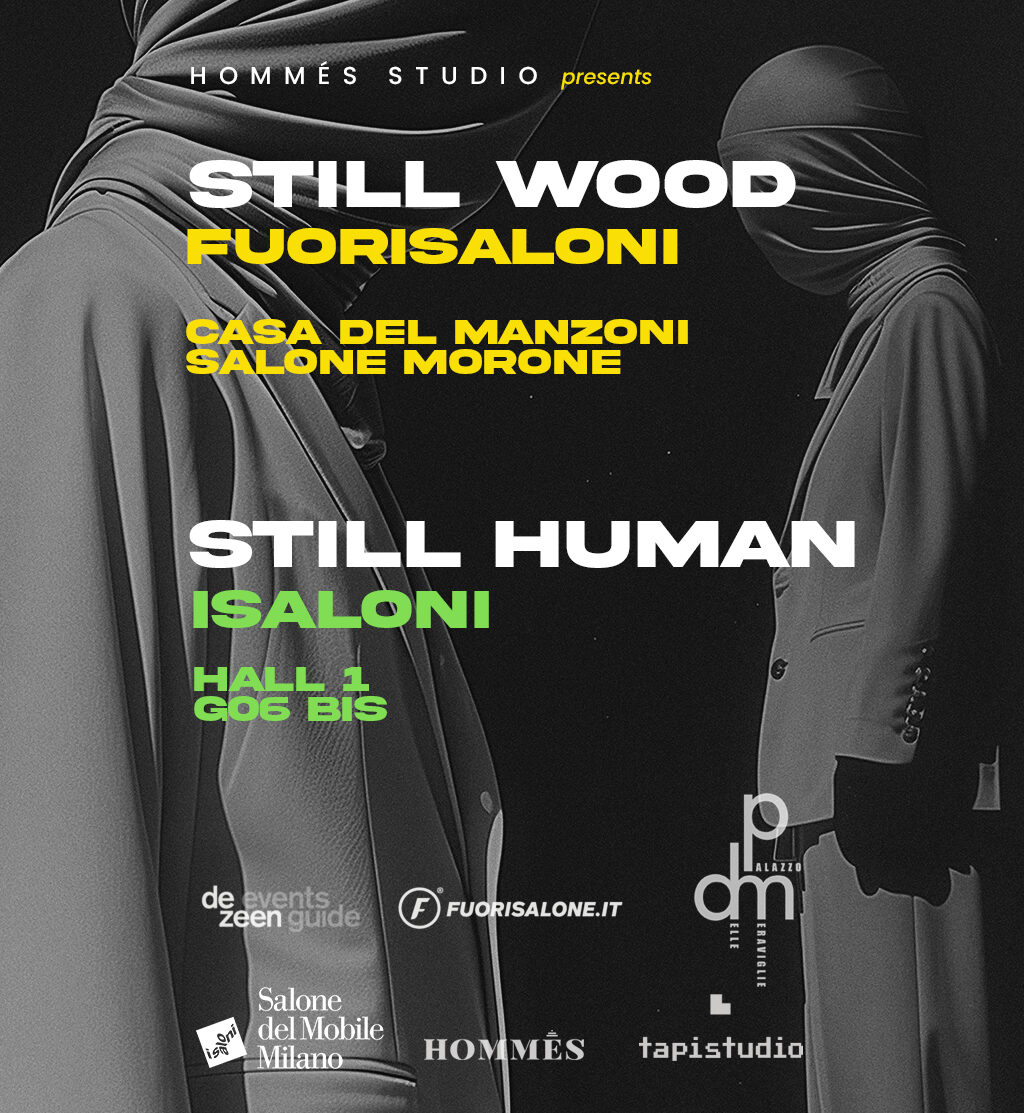One of the best things about travel is soaking up a destination’s rich history and culture. Furthermore, sometimes, you do not even need to leave the hotel rooms to do it. These historic hotels, which can be considered museums, have accommodated some of the world’s most distinguished guests over the years.
Whether it is at the private tropical villa where Ian Fleming wrote 14 of his James Bond books or the Parisian refuge that Coco Chanel called home for 34 years, a stay at one of these historied accommodations is sure to give an extraordinary glimpse into the inner lives of these figures and leave you with your own story to share.
Ian Fleming: The Fleming Villa, Jamaica
In anticipation of the 25th James Bond movie set in Jamaica, fans can retrace the island life of Bond’s creator, Ian Fleming. Working as a British intelligence officer, the author came across the Caribbean island during a World War II mission, and after, he purchased 15 acres of under-developed tropical land. There, he built his dream home, naming it GoldenEye after the wartime intelligence operation that brought him there.
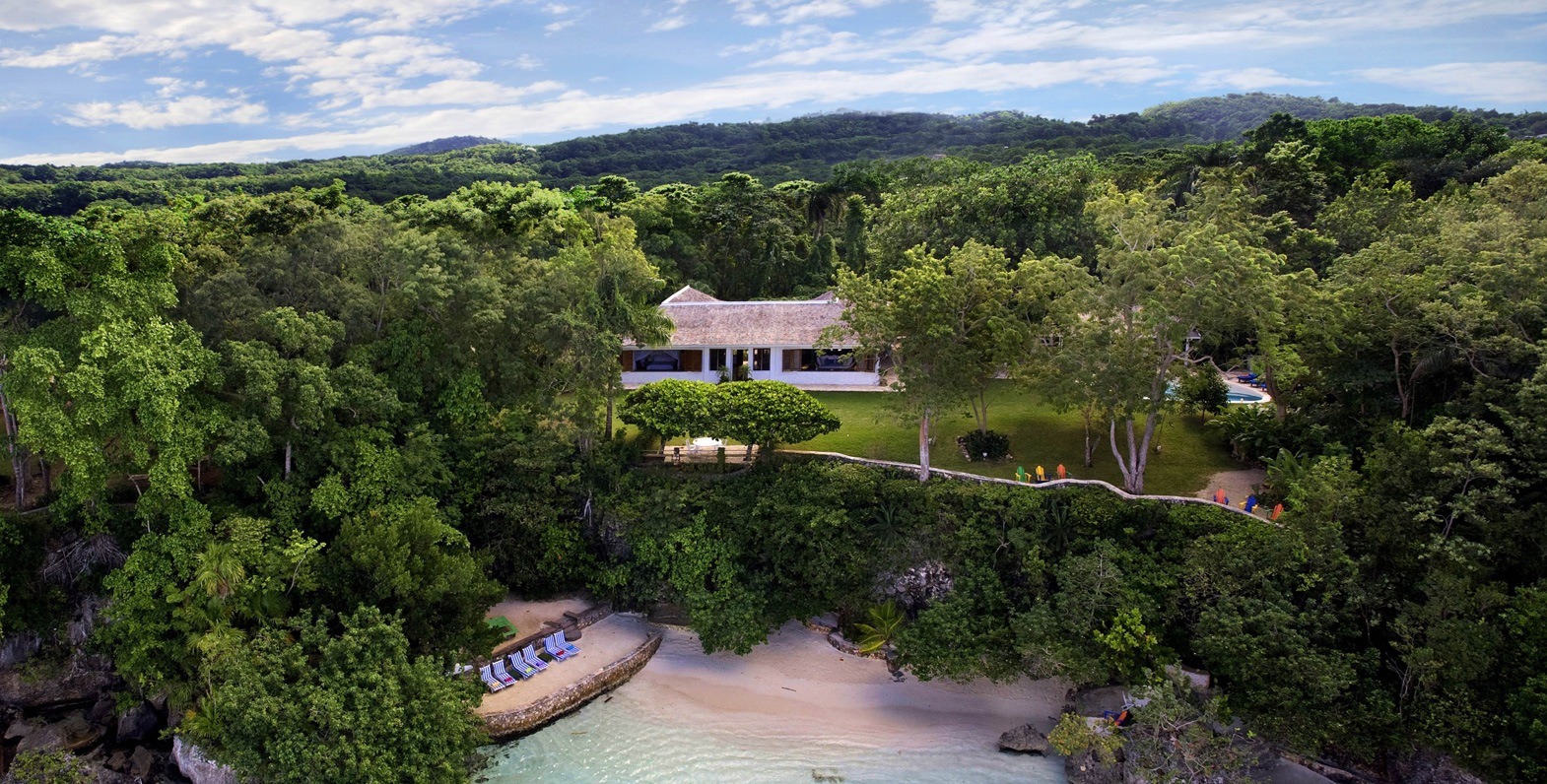
For two decades, Fleming would write a new Bond story each winter from a corner of his beachfront bungalow. “Would these books have been born if I had not been living in the gorgeous vacuum of a Jamaican holiday? I doubt it,” he once said of the 14 novels. Now, the five-bedroom Fleming Villa, set inside a luxurious garden with a private beach, is available to rent.
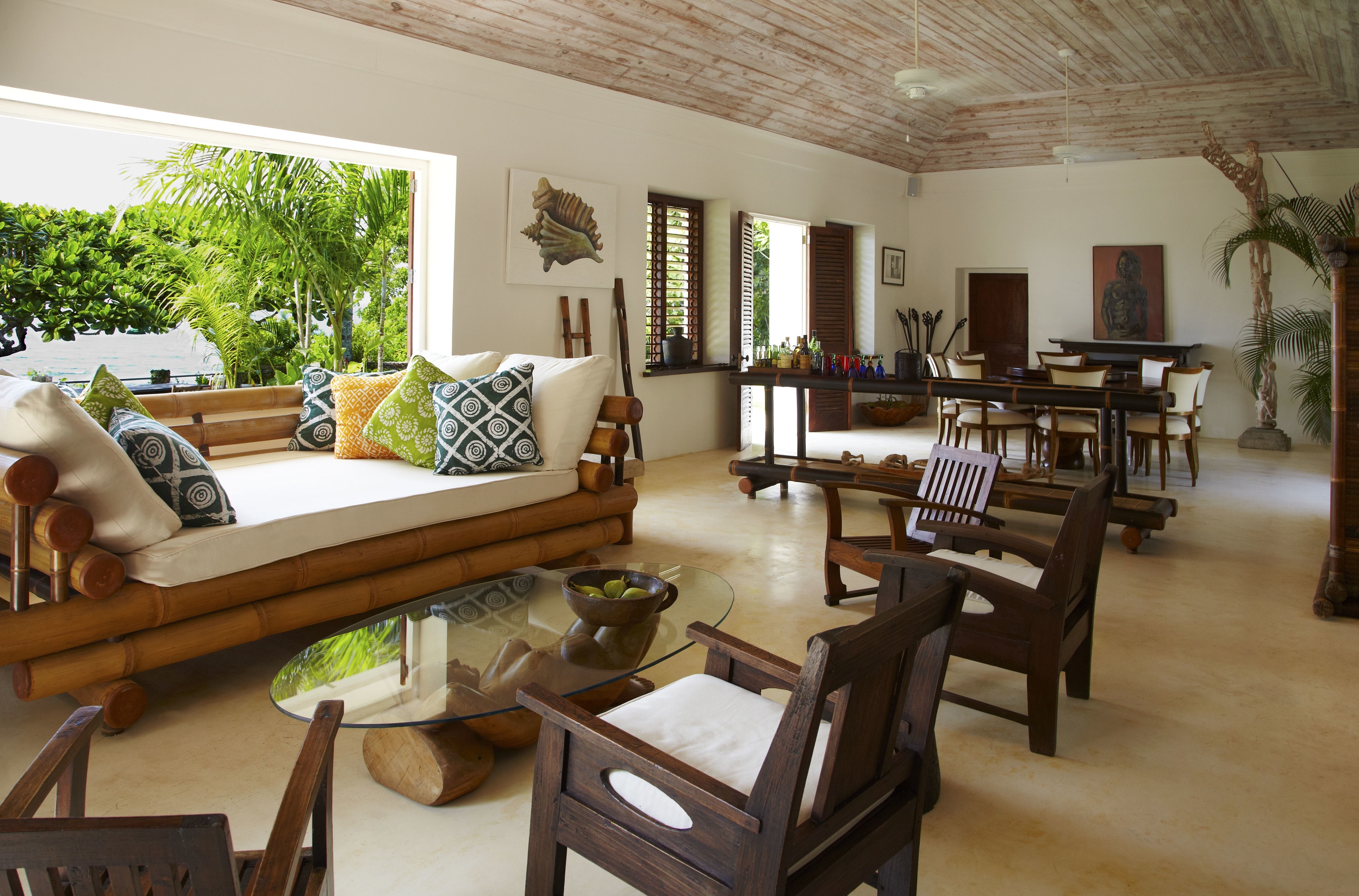
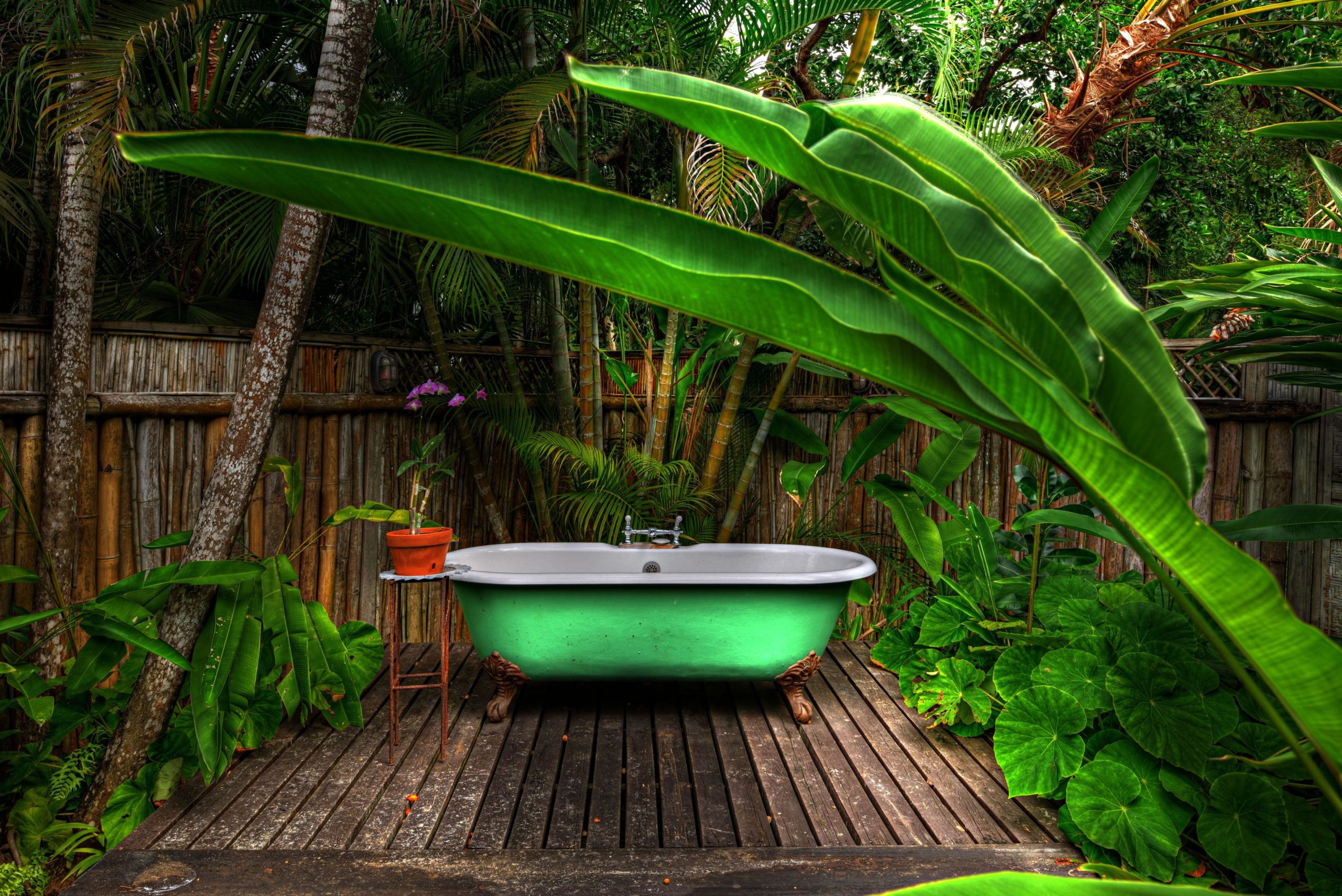
.
John Ruskin: The Gritti Palace, a Luxury Collection Hotel, Venice
The Renaissance palace was once home to the 16th-century doge of Venice Andrea Gritti. The Gritti Palace has stunned the cultural elite with its extraordinary collection of art, antiques, and magnificent Venetian decor for centuries.
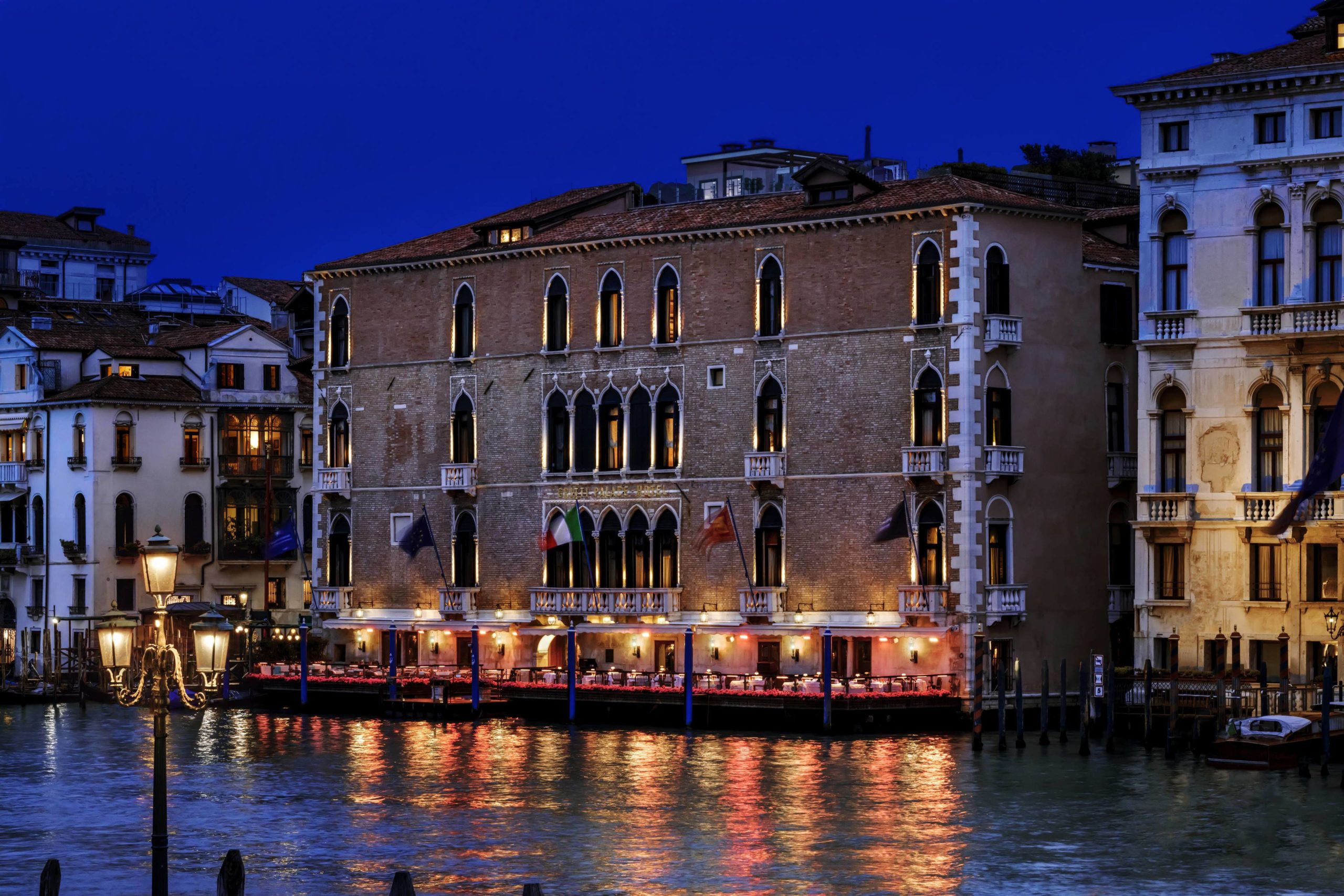
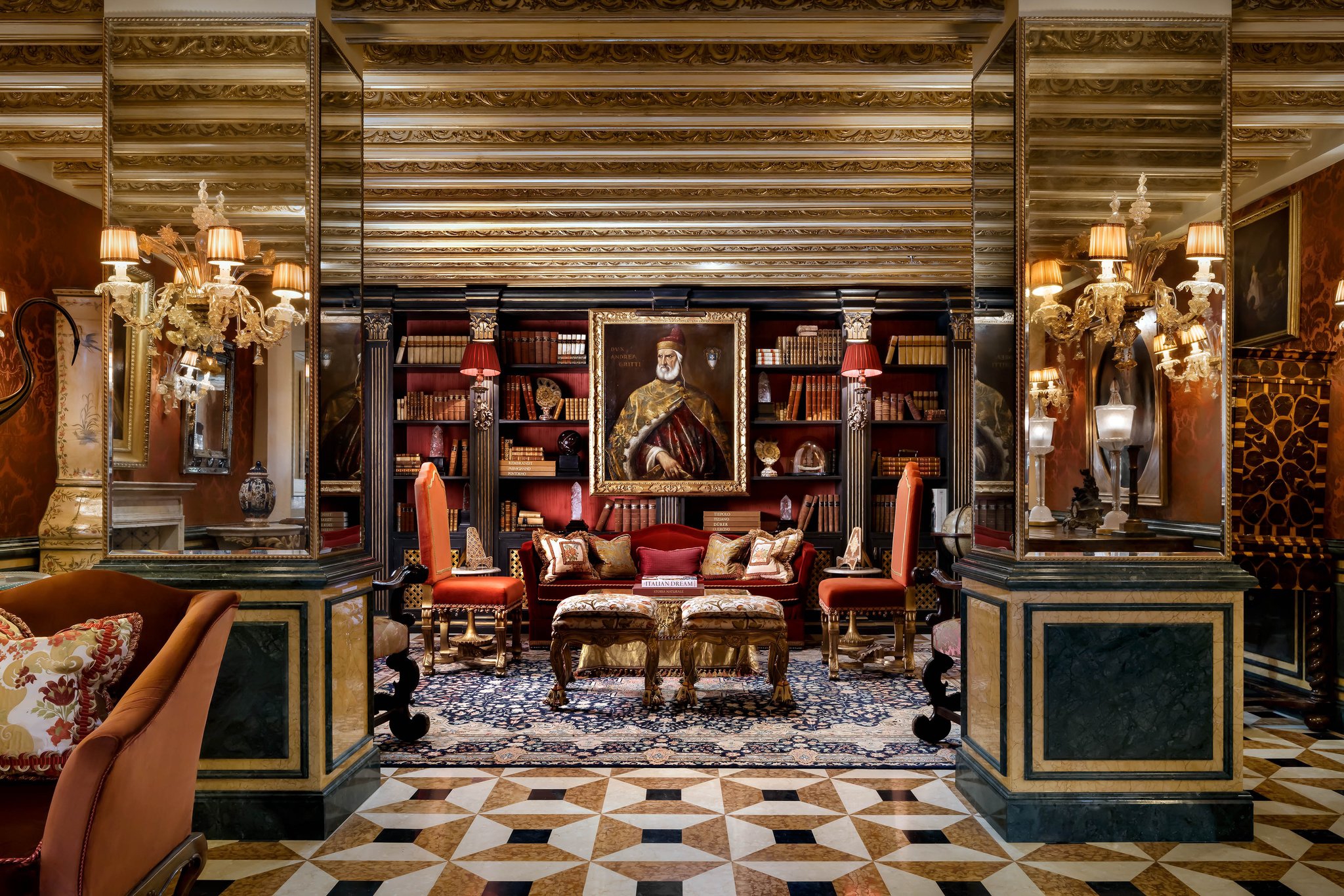
In 1851, the famous Victorian art critic and writer John Ruskin and his wife Effie spent a winter at the hotel, where he wrote his book “The Stones of Venice.” The lavish hotel rooms are beautifully renovated. In particular, John Ruskin Suite boasts views of the Grand Canal and the Santa Maria Della Salute. It also features a vivid floral wall covering offset by its striped gold-trimmed curtains, hand-made Murano glass chandeliers, and Ruskin’s original oil painting.
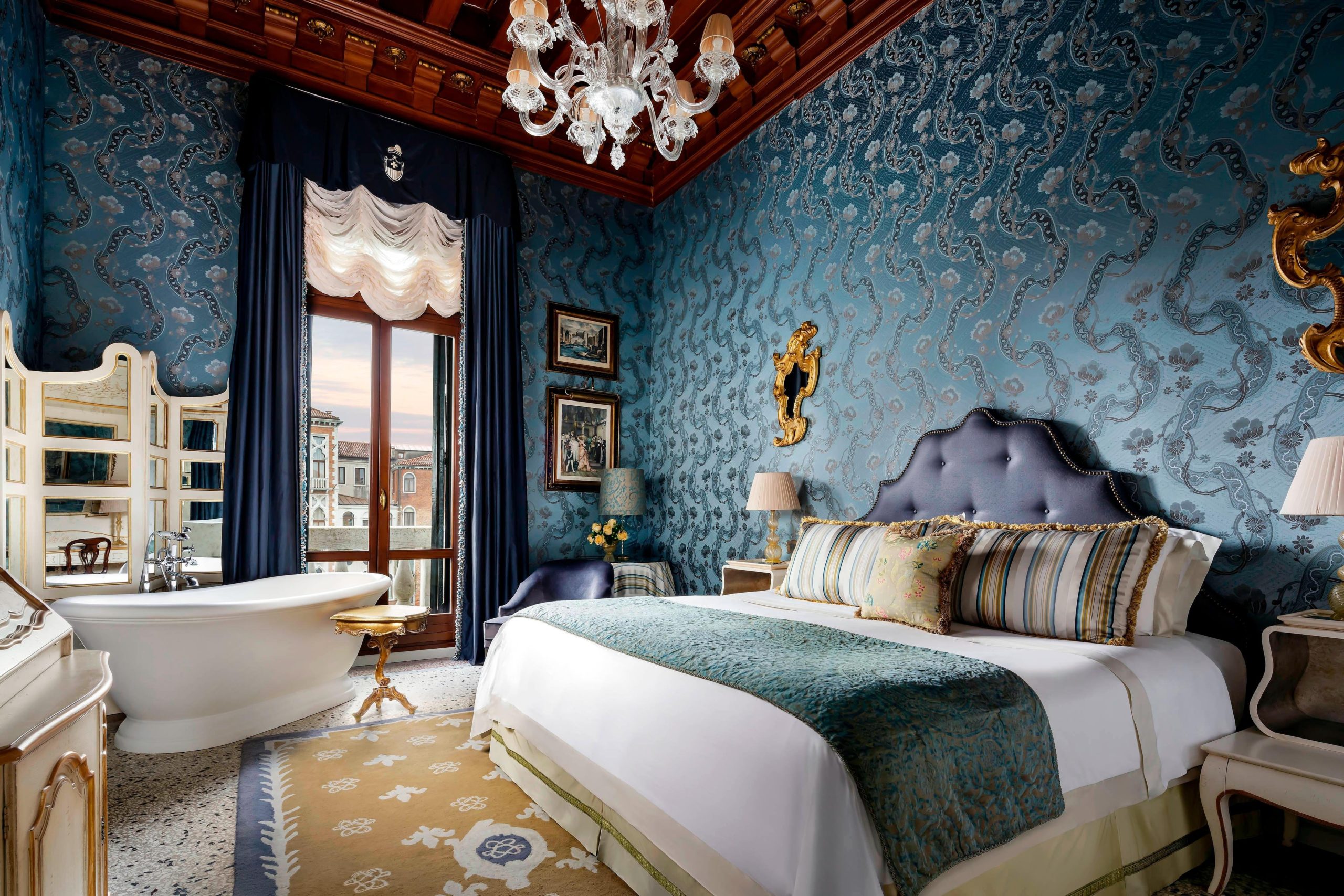
.
Coco Chanel: The Ritz, Paris
“The Ritz is my home,” Coco Chanel once declared, and she meant it quite literally. Although the fashion designer had a luxury apartment above her shop, she moved into The Ritz in 1937, making suite No. 302 her own.
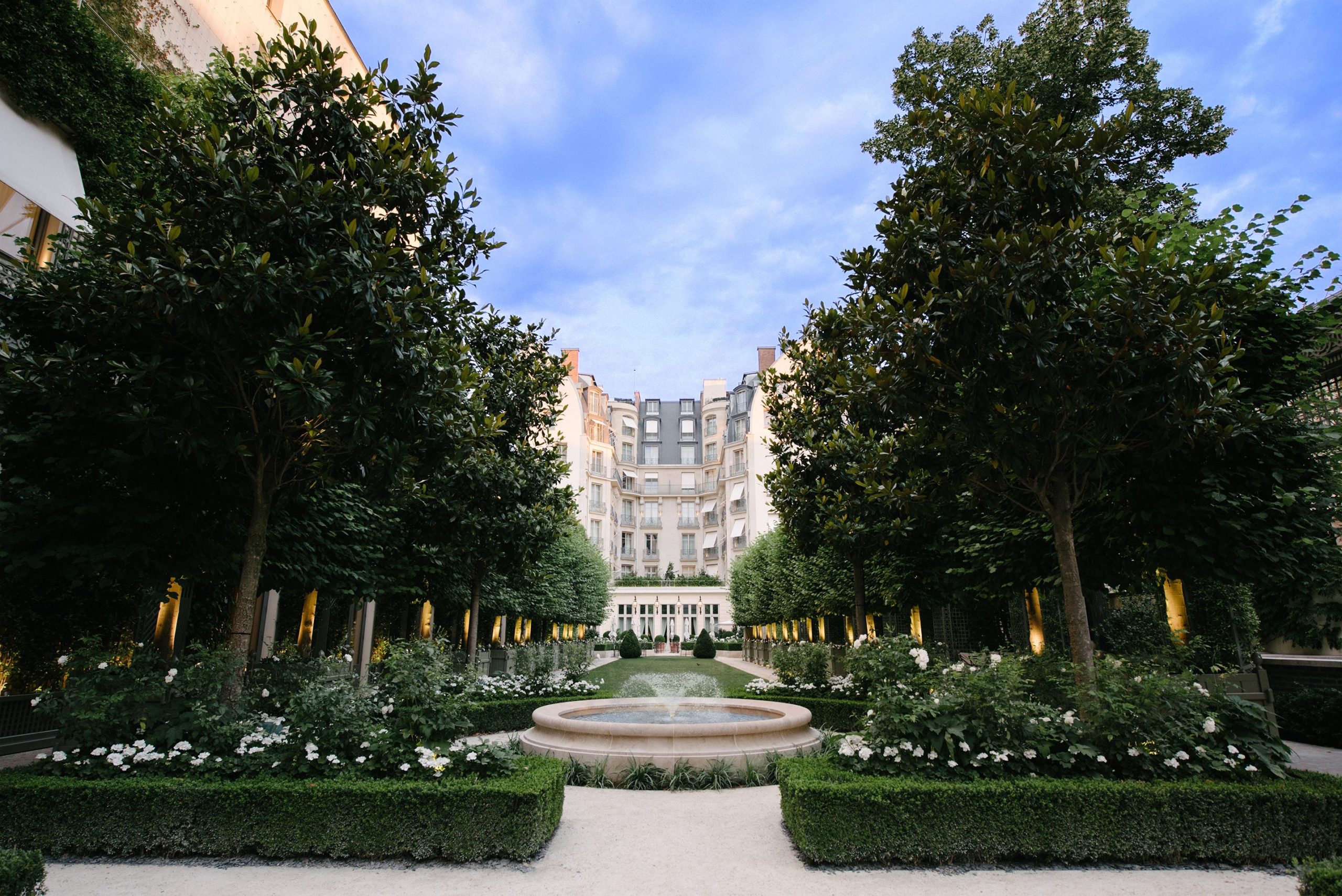
It stayed her primary residence until she died in 1971. Now, guests can step into her elegant world with the Coco Chanel Suite, created in her honor on the floor below. Designed by Karl Lagerfeld, the black-and-white room boasts a stunning view of the Place Vendôme, which was the inspiration for the octagonal cover on her famous Chanel No. 5. perfume.
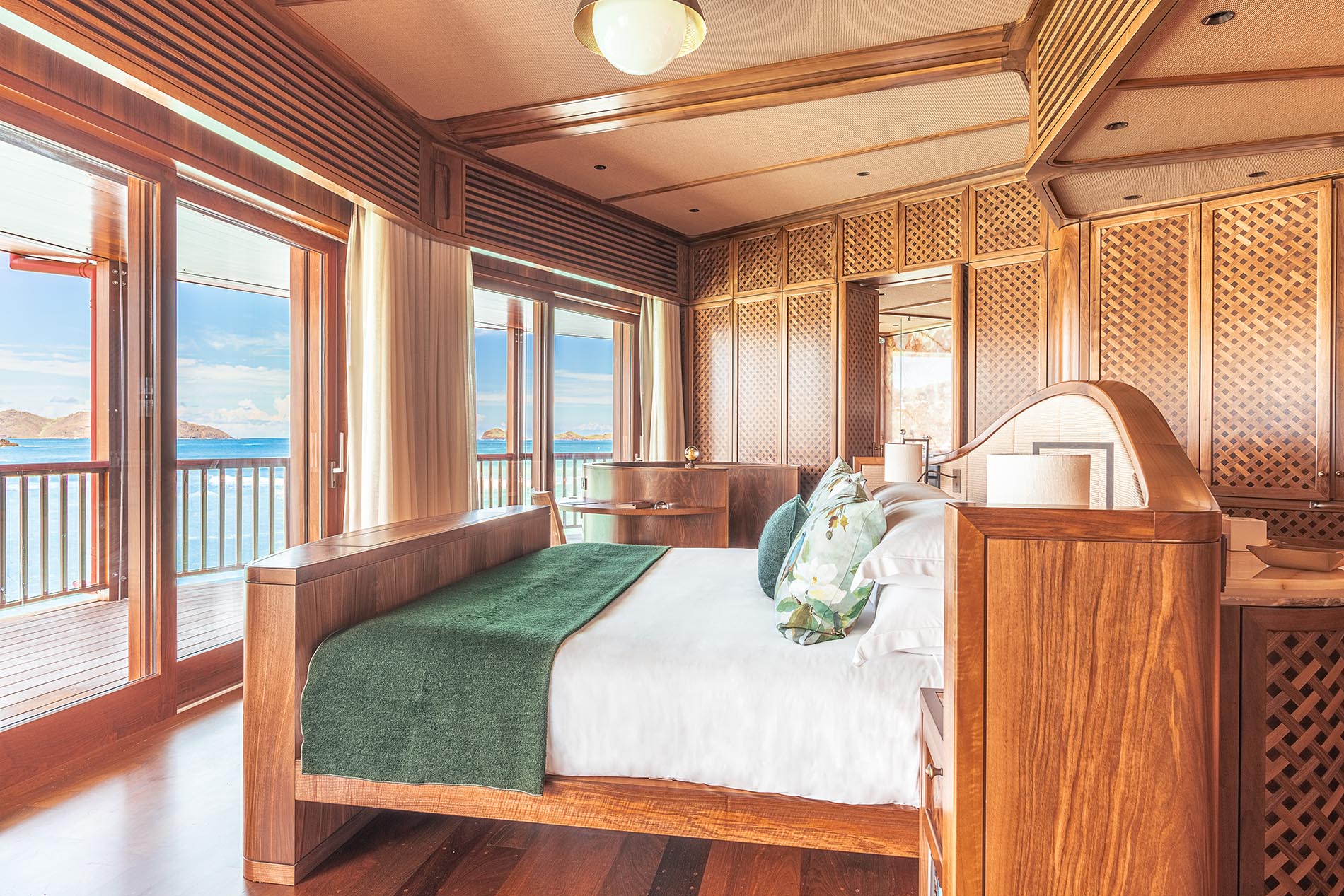
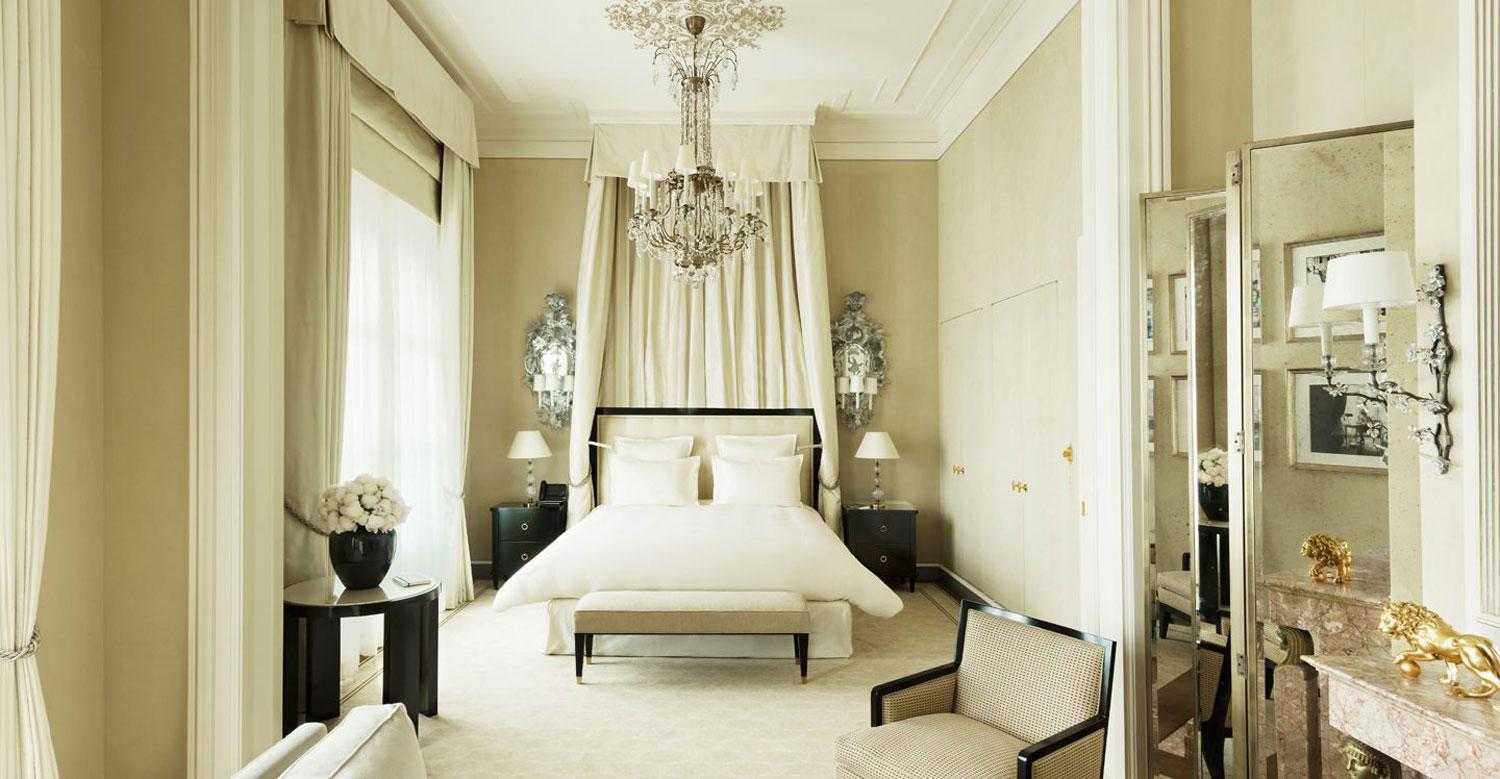

.
Greta Garbo: Eden Rock, St. Barth’s
Eden Rock’s history goes back some 50 years. Remy de Haenen, a much-loved eccentric adventurer and aviator, built his home on a rocky promontory above St. Jean Bay. His friend, the actress Greta Garbo loved to spend her winters at the resort.
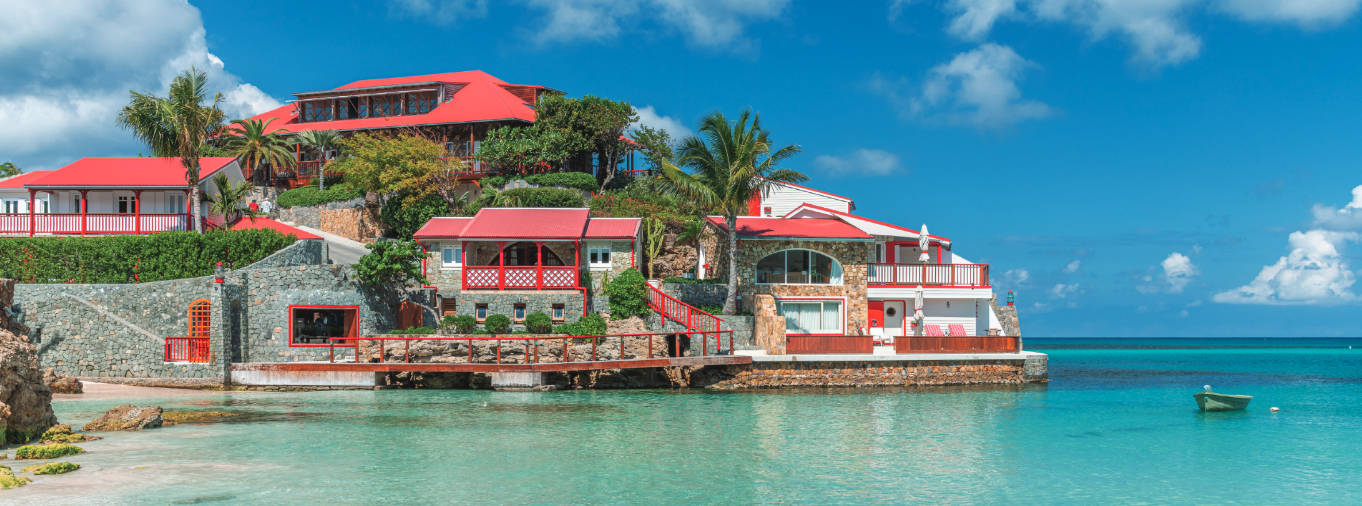
Perched high on a craggy rock, the Greta Garbo suite offers a private terrace and garden with stunning views of the turquoise waters. Designed with a quintessential 1930s Hollywood glamor aesthetic and a comforting palette of natural wood, cream, and grey-green fabrics, it is the perfect place to escape from it all in style.

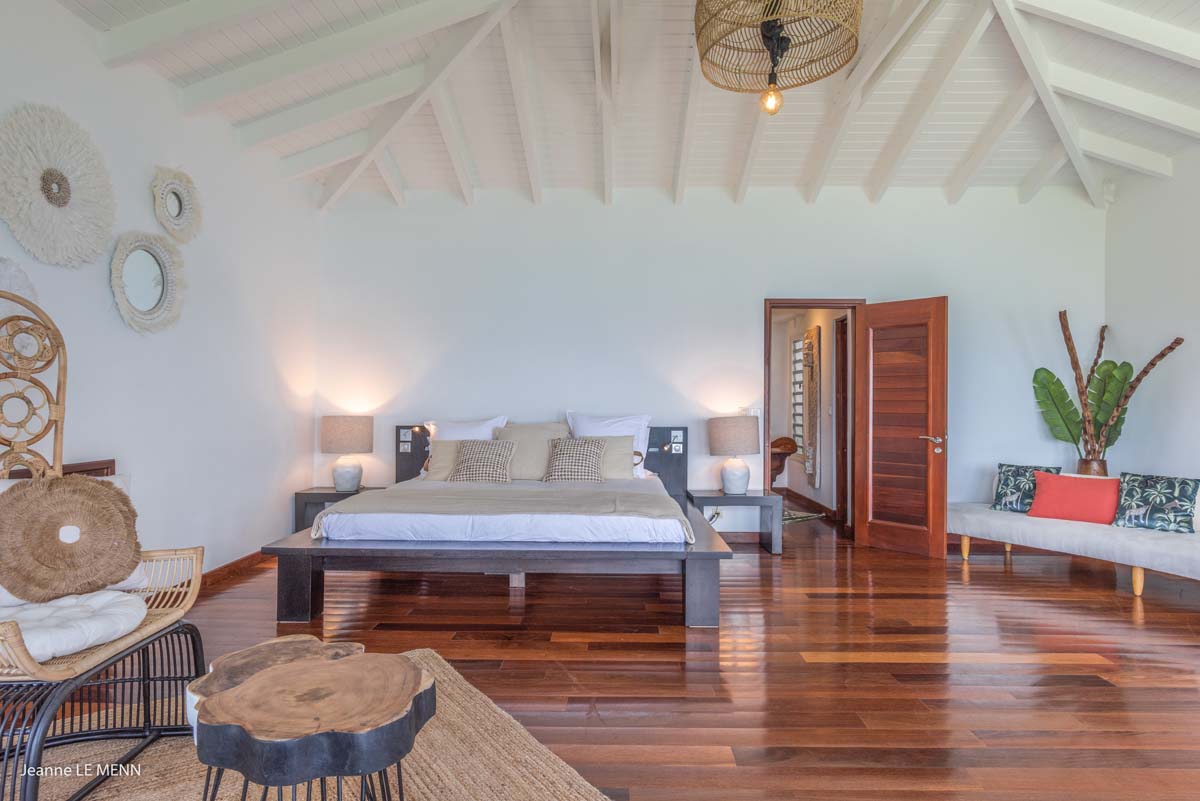
.
Winston Churchill: La Mamounia, Marrakech
The former British Prime Minister and wartime leader once said that “Marrakech is simply the nicest place on Earth to spend an afternoon,” which explains why he kept returning to Morocco’s charming city for most of his life.
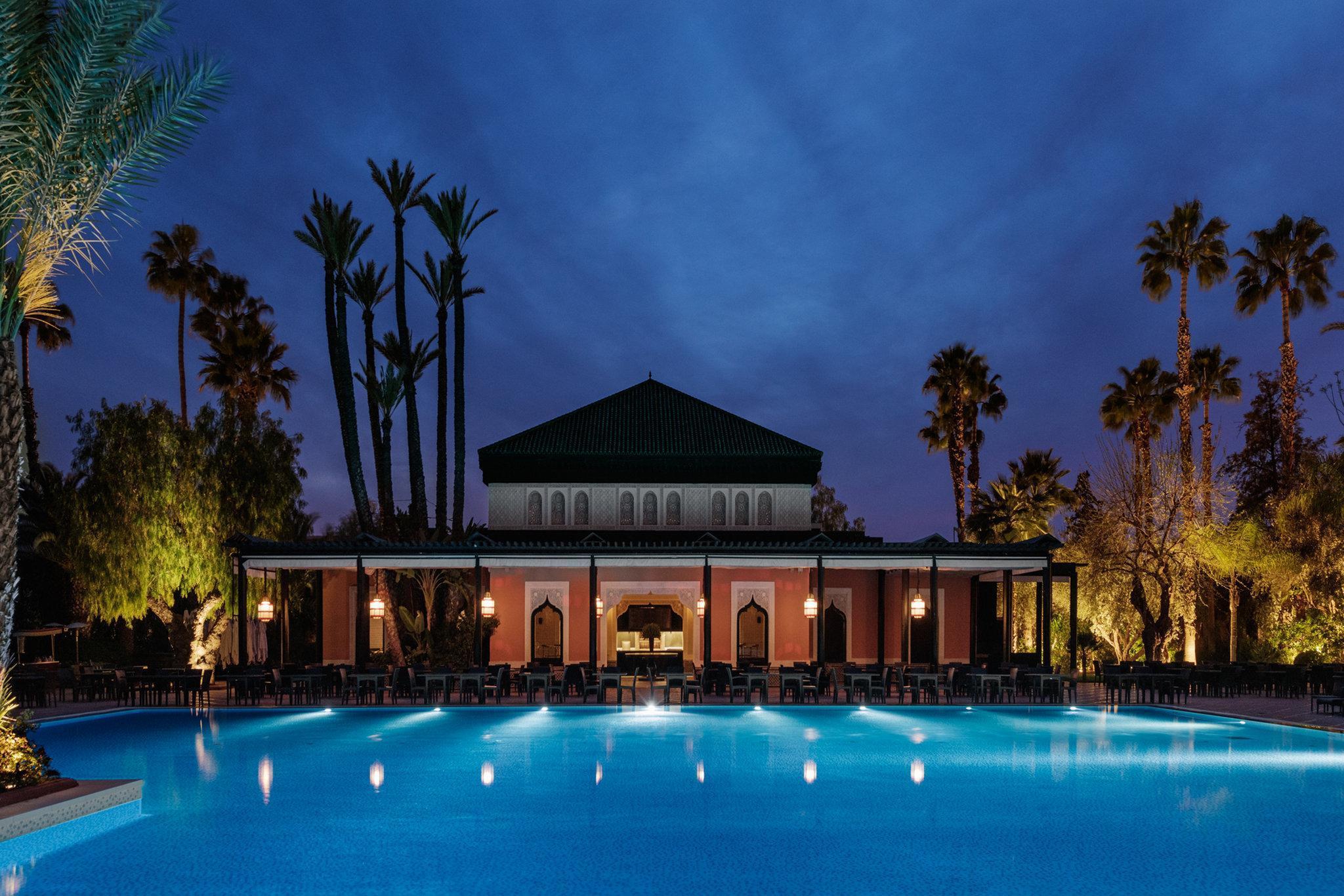
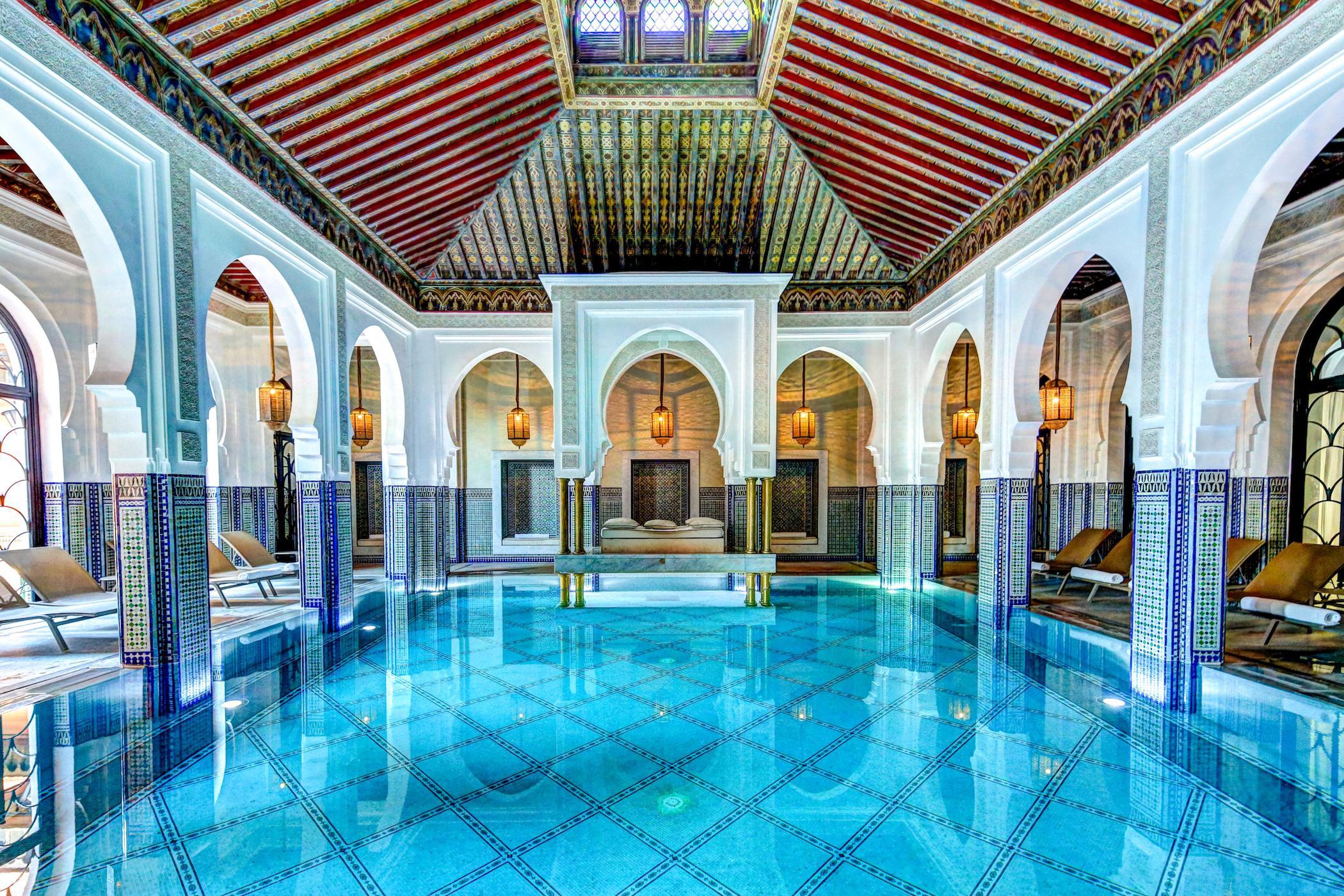
After the war, he would always book into La Mamounia, the city’s legendary hotel. The spirit of Churchill leads over the opulent third-floor Winston Churchill Suite. Boasts sweeping views of the lush gardens and a seamless blend of English style and Moroccan tradition throughout its hotel rooms and lounge.
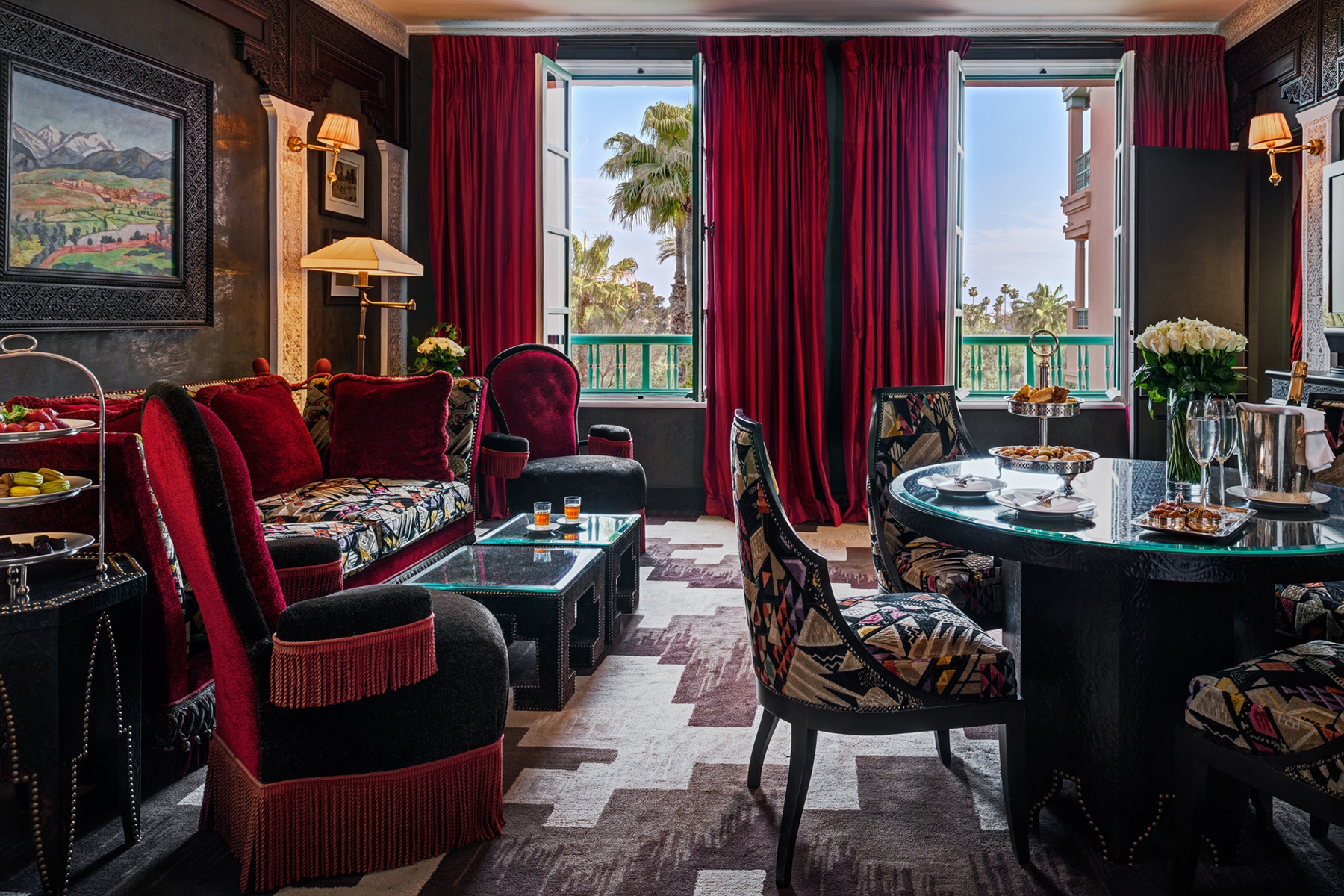
.
Empress Eugenie of France: Claridges, London
The trailblazing Empress Eugenie of France, Napoleon III’s wife, stayed at the iconic London hotel so frequently that she referred to it as her “winter quarters.” Her close friend Queen Victoria’s private visits during her stay received the hotel its famous nickname, “the annex of Buckingham Palace.”
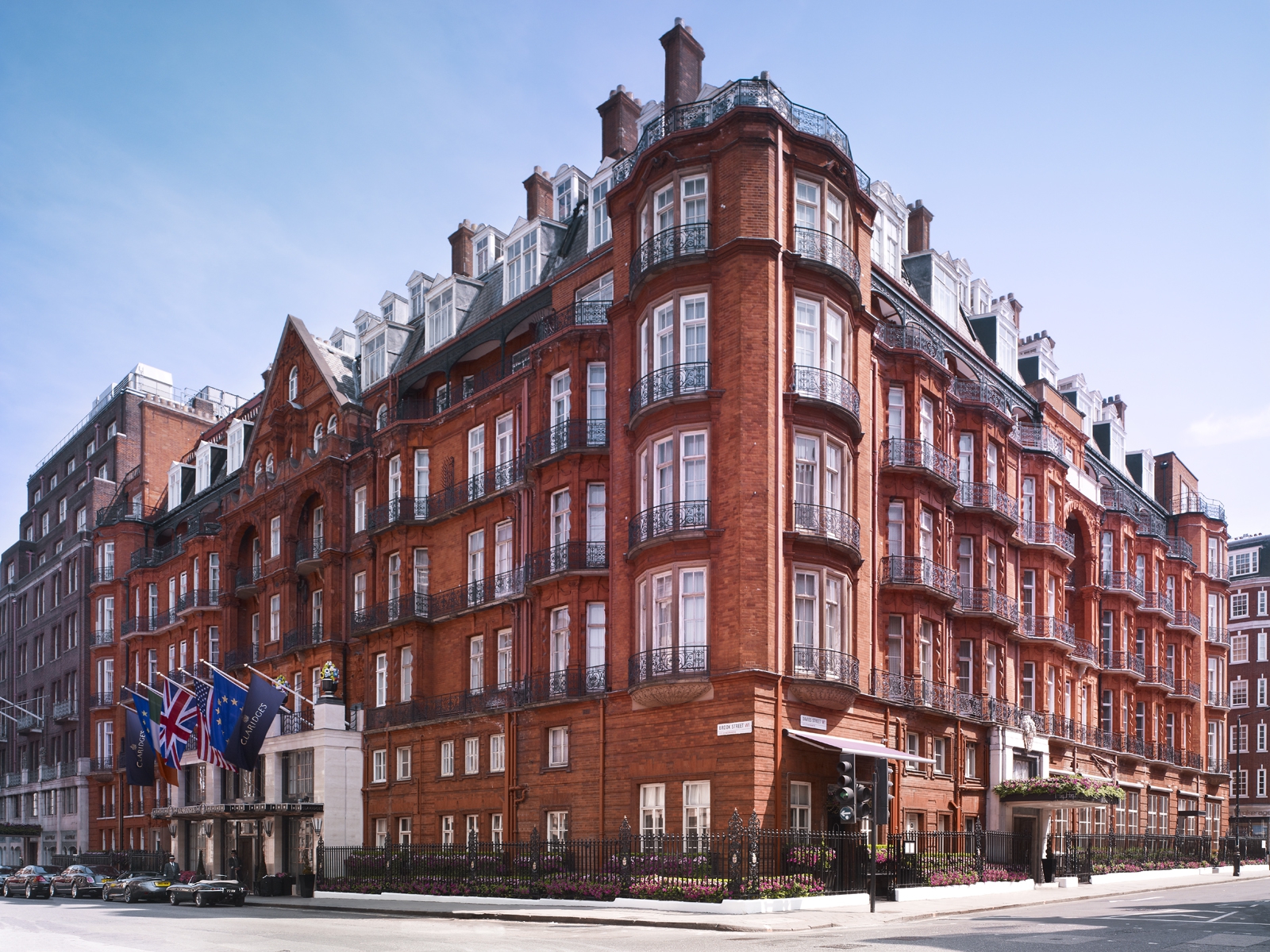
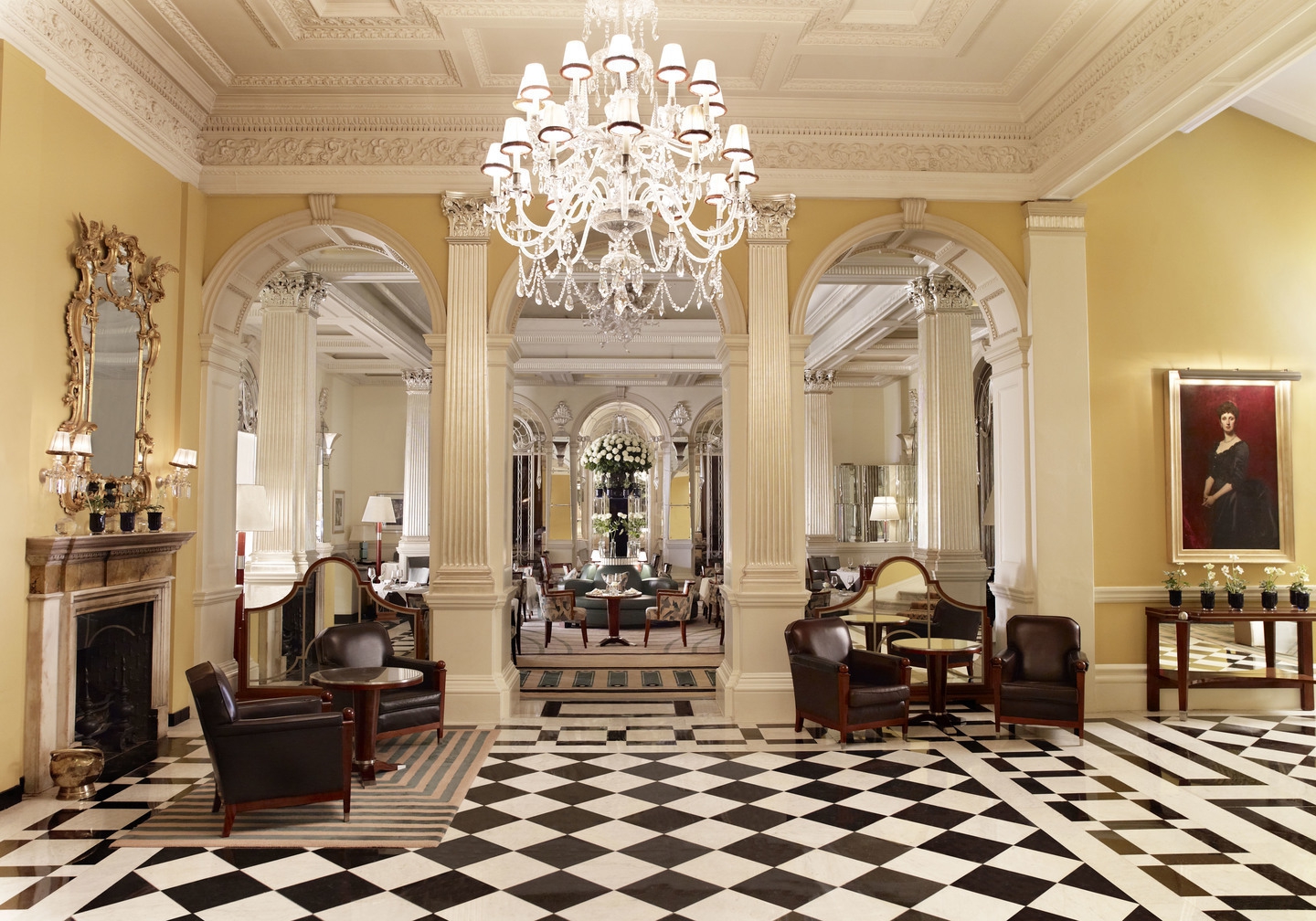
While the hotel has been renovated many times and that original room no longer exists, the sumptuously reimagined Empress Eugenie Suite nods to its storied guest. A two-bedroom room decorated with a mix of French-style furnishings and delicate silk and velvet embellishments.
Surrounded by a feminine palette of pinks and grays, guests can even read the Queen’s letters, and the Empress exchanged throughout their friendship.
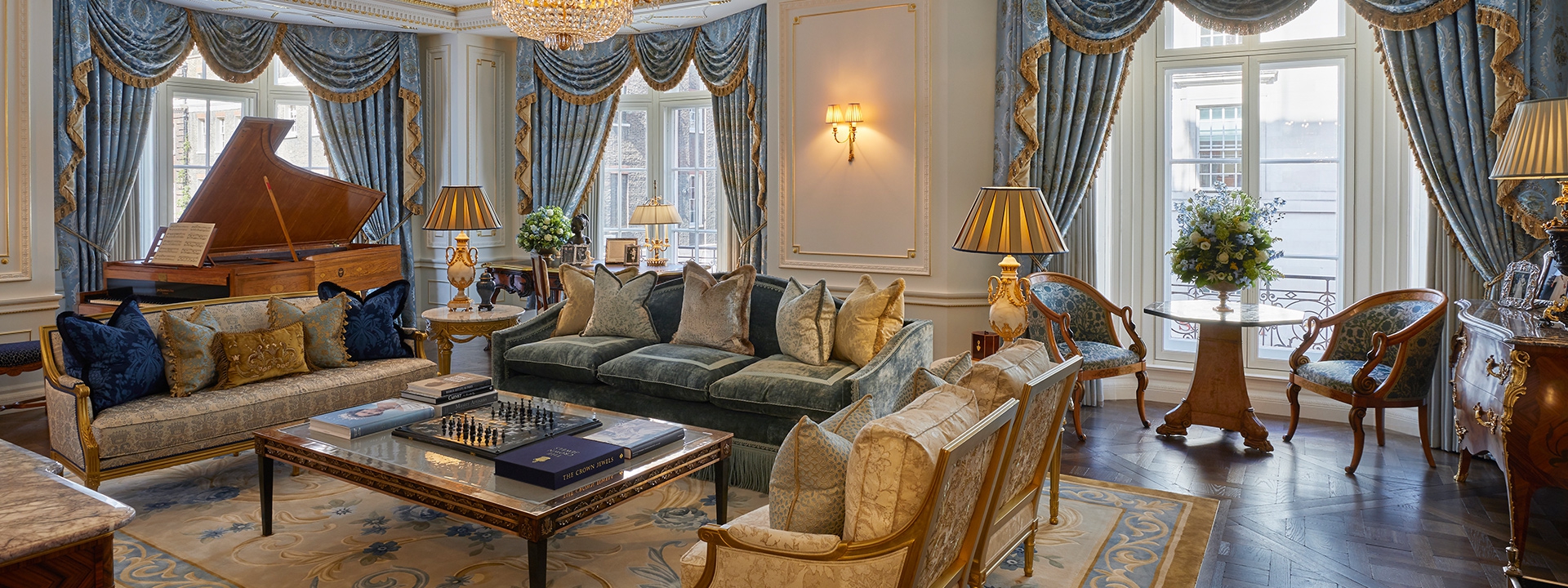
.
Oscar Wilde: The Cadogan, A Belmond Hotel, London
The property housing Oscar Wilde’s former pied-a-terre has been reimagined as the new 54-key Cadogan, A Belmond Hotel, a grand townhouse with a charming residential feel.
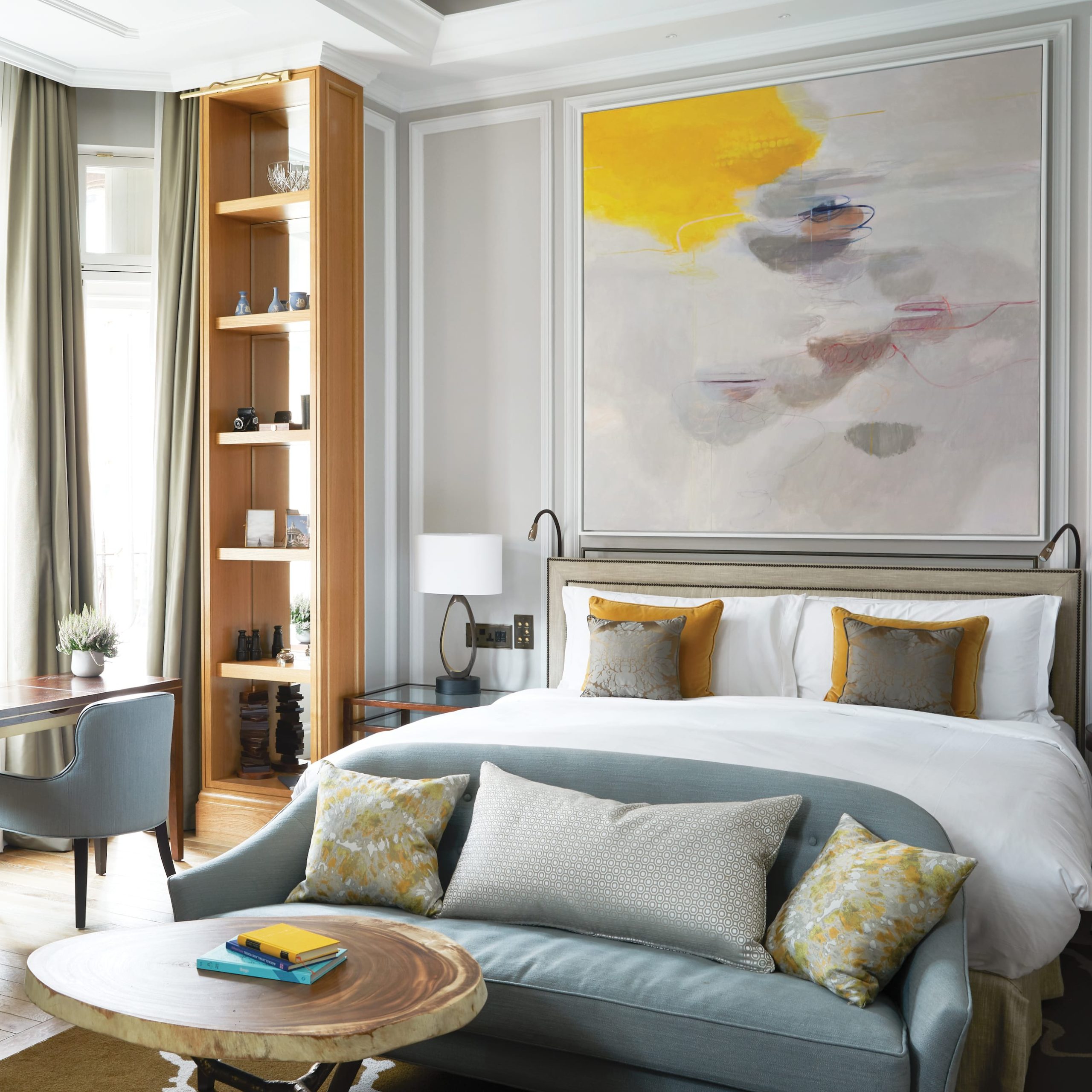
The Royal Suite incorporates part of what was historically Wilde’s home-away-home, Room 118, and where he was arrested in 1895. Exuding modern and understated luxury, the hotel rooms see many original features, including the Queen-Anne-Revival style and the 130-year-old wooden paneling.
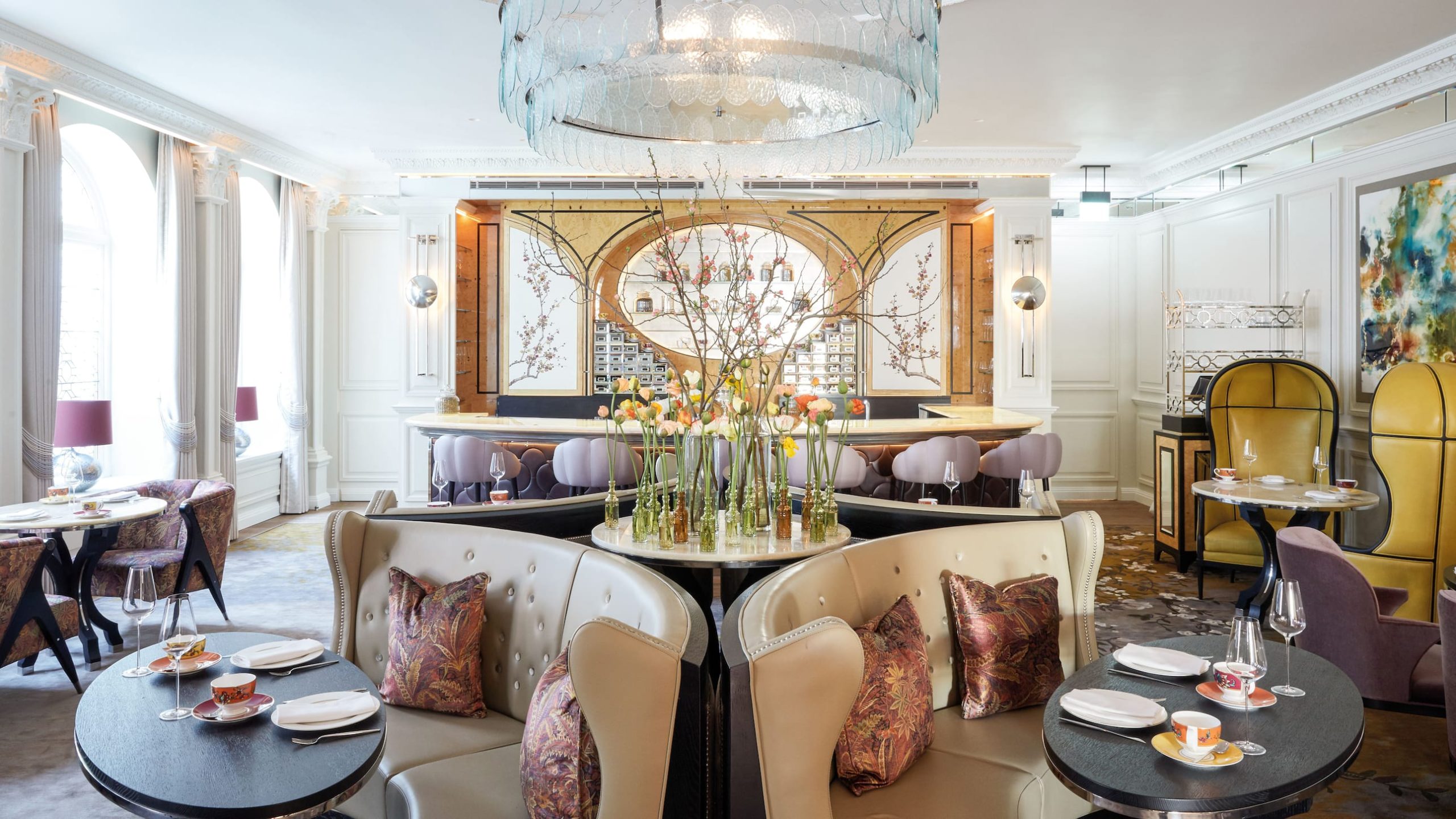
Channel Wilde’s spirit by cozying up to the fire with a good book from the in-room library, which features a collection of British literature expertly curated in collaboration with London’s beloved independent book shop John Sandoe.
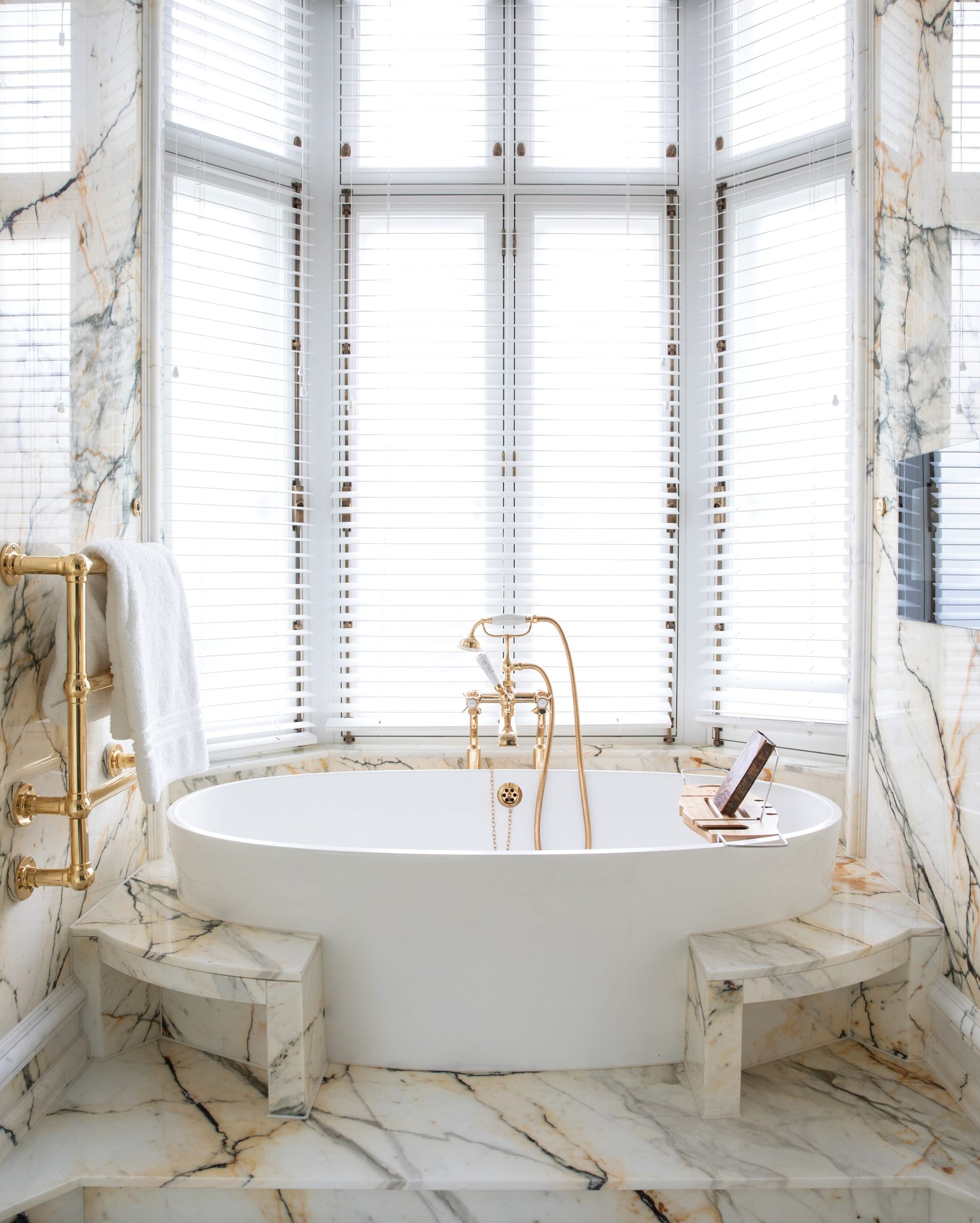
.
Wes Anderson: Hotel Locarno, Rome
The wildly imaginative director Wes Anderson did some research for his whimsical film “Grand Budapest Hotel” at the legendary Hotel Locarno hotel in Rome.
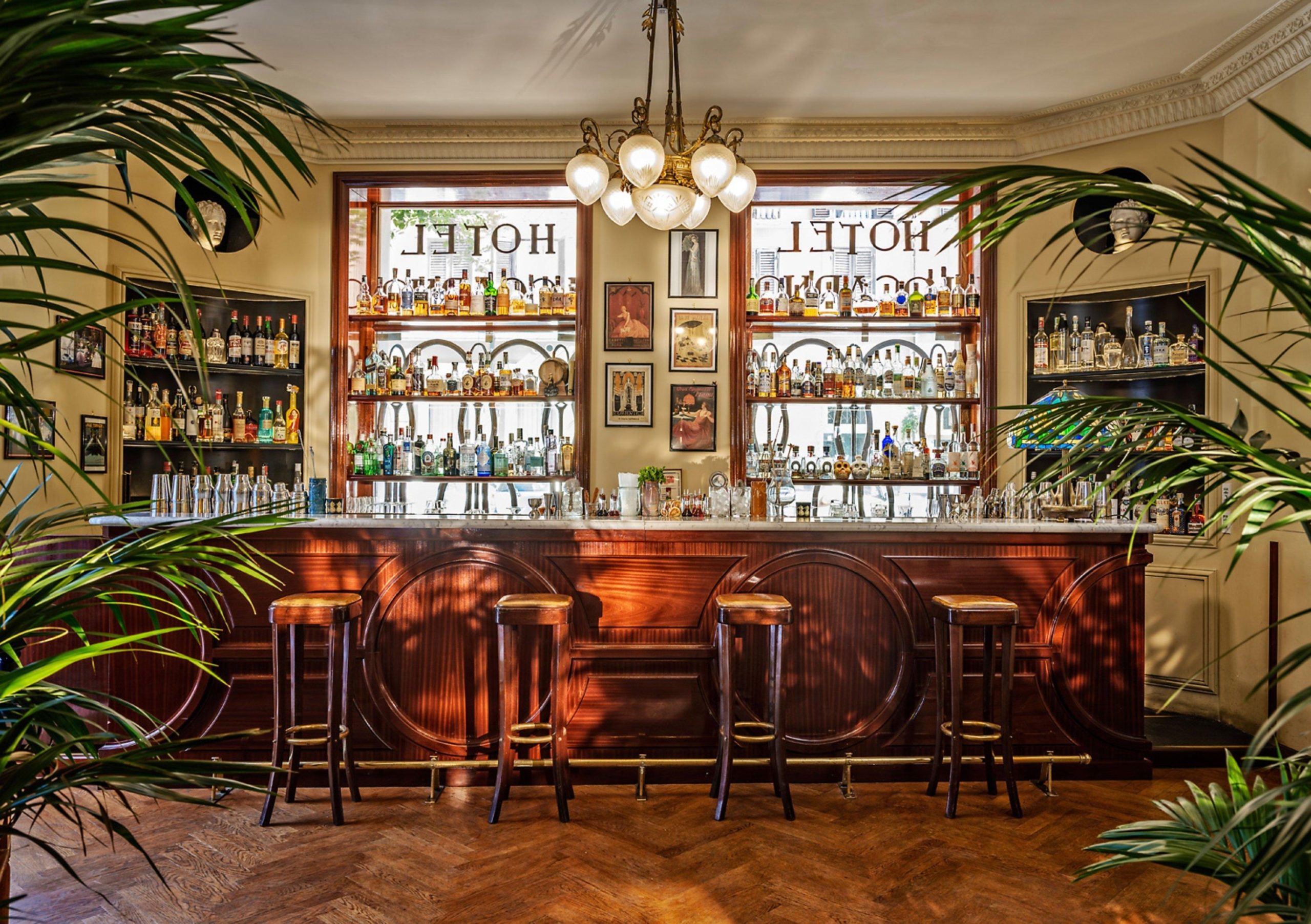
Opened in 1925, Hotel Locarno is one of Rome’s most storied hotels and a literary legend, attracting a wide range of colorful customers over the years, from Federico Fellini to Jack Kerouac. The tiny, old-fashioned elevator and the scalloped-glass awning of the Grand Budapest in the film seem to be inspired by Locarno’s.
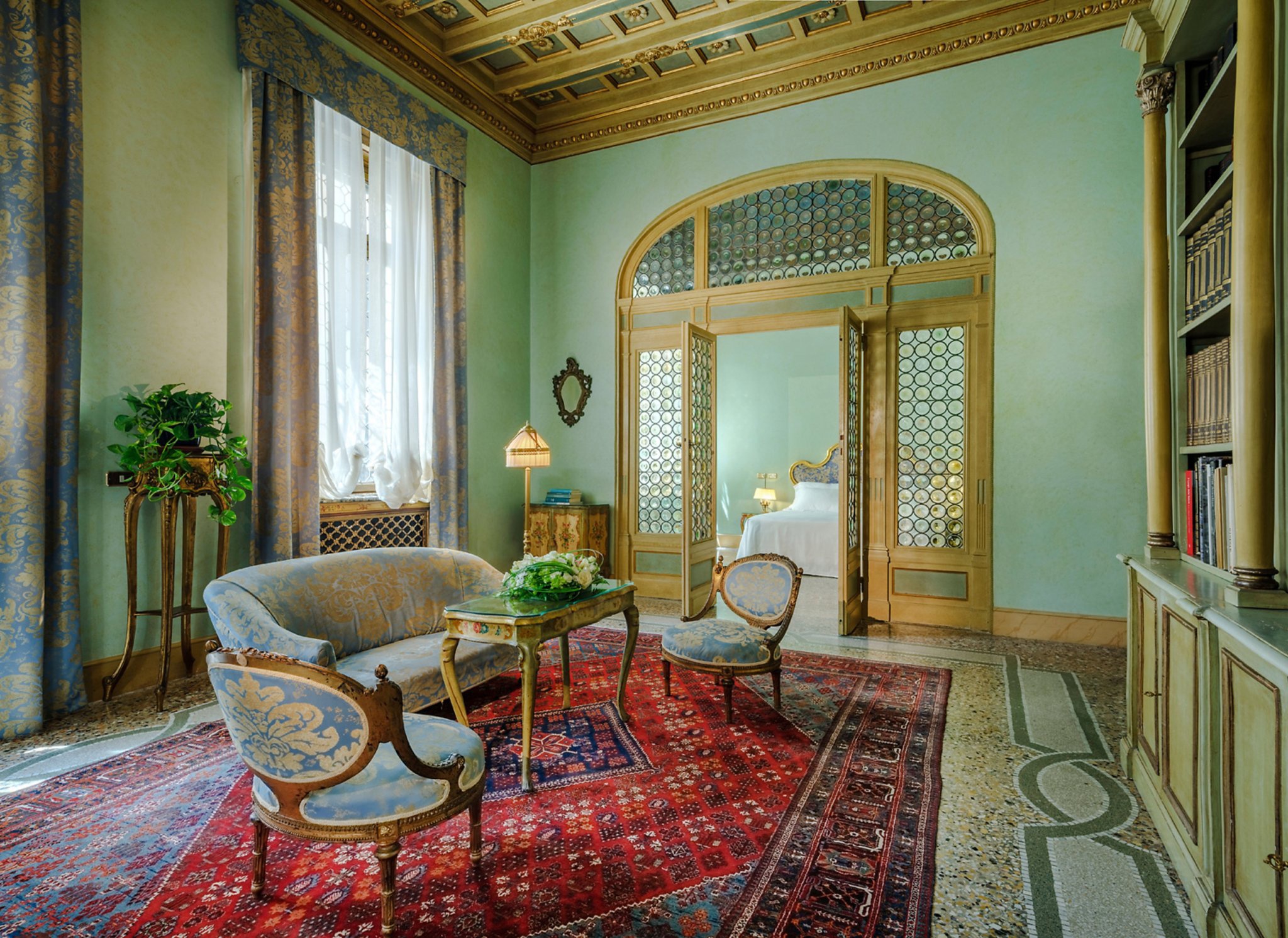
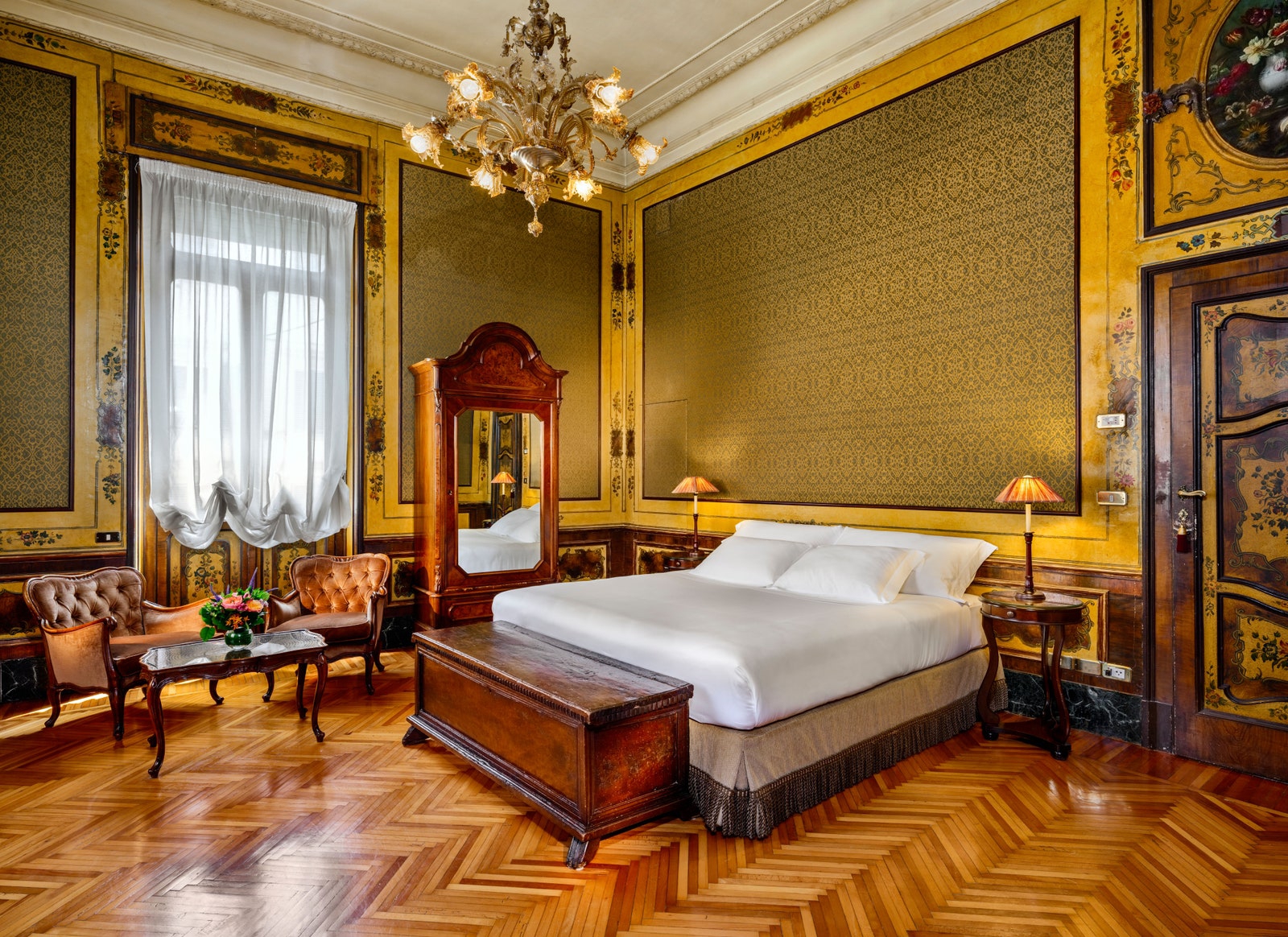
.
Salvador Dalí: The St. Regis, New York
After Salvador Dalí ‘s first trip to New York in 1934, the Surrealist artist would spend every winter at the legendary St. Regis in New York. Accompanied not only by his wife, he would often bring a host of animals, including his pet ocelot Babou.
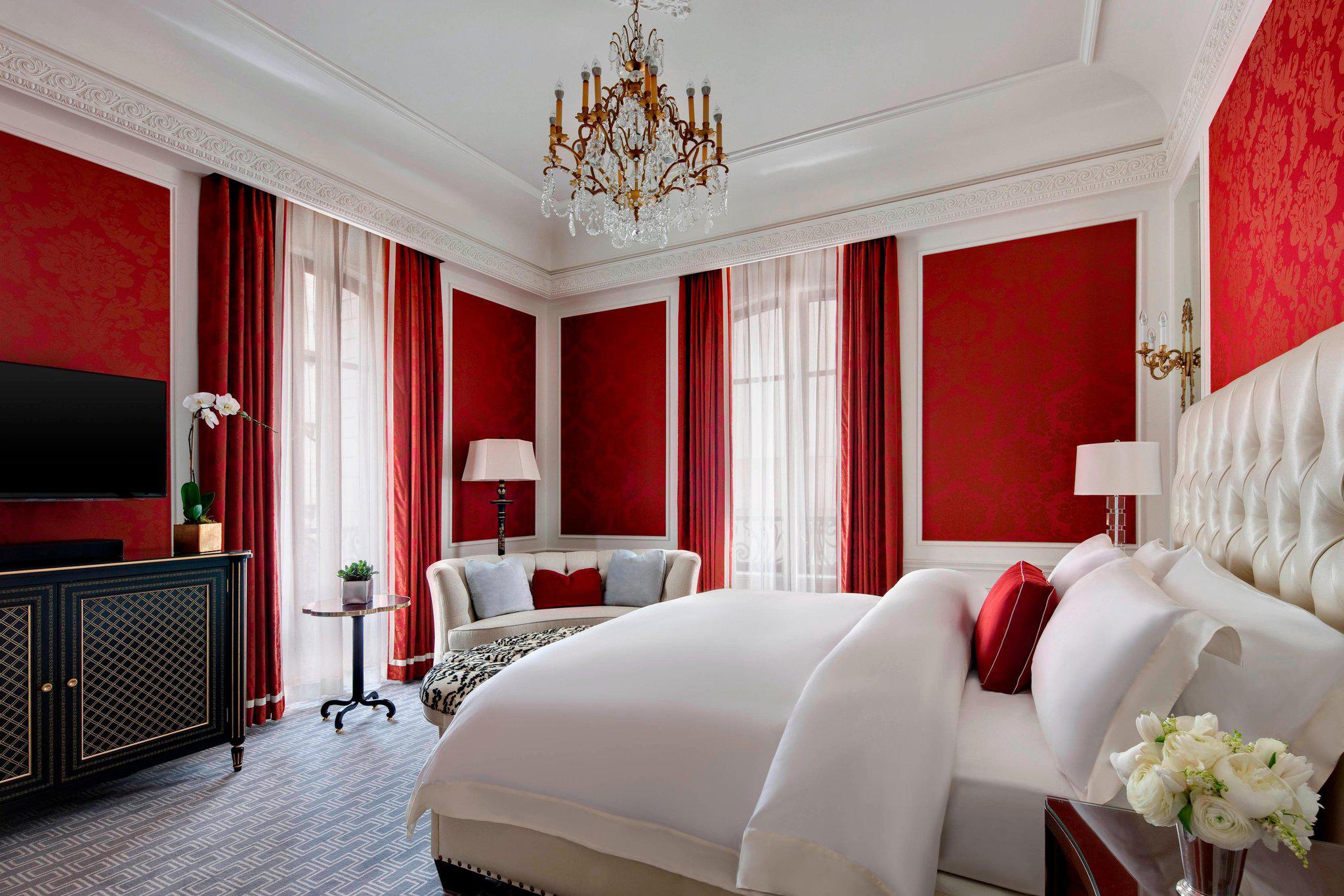
In these hotel rooms, he had many meetings, including Helena Rubinstein’s commission to create her frescoes or being introduced to art collectors Eleanor and Reynolds Morse, who found the Dalí Museum in St. Petersburg, Florida.
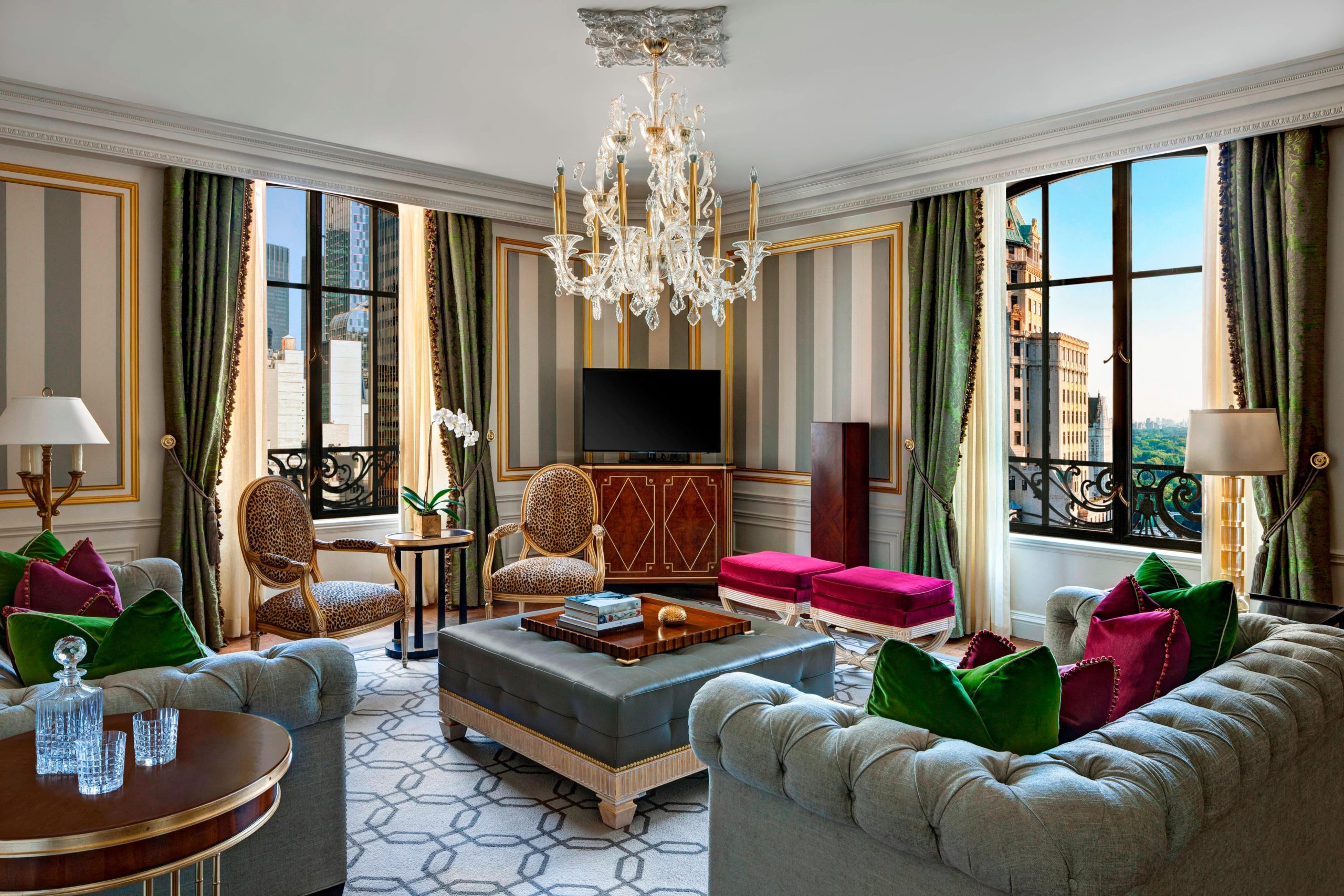
He even painted in a studio at the hotel. While the original room is no longer, the glamorous Fifth Avenue Suite, offering views of the iconic street below, is the closest to room 1610. The hotel’s landmark Astor Court recently launched a unique afternoon tea service, The Dalí Tea, inspired by the artist, who was known to while away the afternoon there with Andy Warhol.
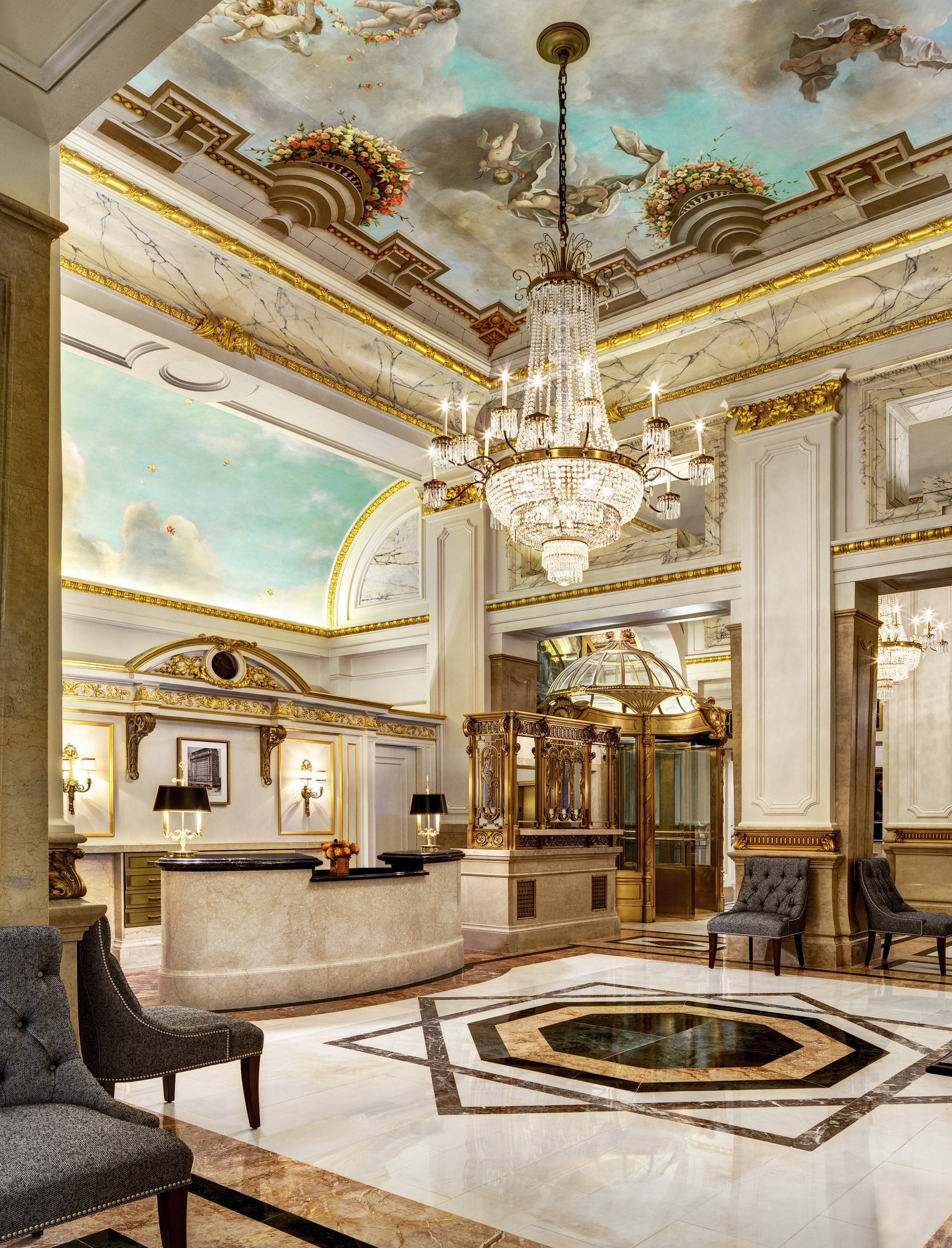
We hope you liked this top design hotels article. Feel free to pin all the images to your favorite Pinterest board. Meanwhile, you can also visit our Pinterest boards to get more inspiration.
Also, get more ideas for your projects and find functional, stylish, and sizable lighting and furniture choices:

